

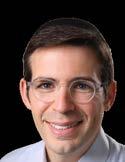
ISSUE 1495 DEC 10TH '22 ג"פשת ולסכ ז"ט PARSHAT VAYISHLACH ה"ב OU ISRAEL 02-560-9100 | TorahTidbits.com | ADVERTISING 02- 560-9125 חלשיו תשרפ YERUSHALAYIM IN/OUT TIMES FOR SHABBAT PARSHAT VAYISHLACH CANDLES 4:00PM • HAVDALA 5:16PM • RABBEINU TAM 5:53PM Noteworthy Names Rebbetzin Shira Smiles Faculty, OU Israel Center page 28 אוהה ץראב לארשי ןכשב יהיו בכ:הל תישארב Enable Torah To Thrive! see page 39 Staying Out Late OU Israel Parenting Column Dr. Ethan Eisen, PhD page 60

2 TORAH TIDBITS 1495 / VAYISHLACH 5783 Table of Contents This week's Torah Tidbits cover image! Photo By: Howie Mischel We made aliyah in 2009. This photo was taken in the stunningly beautiful Ayalon Valley in a place that means a lot to us - the fields and orchards of Mevo Horon, a moshav shitufi founded about 50 years ago and located directly across the valley from our home in Modiin -- about a 7 minute car ride away. Our oldest daughter and her family made aliyah to this yishuv in 2011. The picture was taken in close proximity to the entrance of the yishuv, and is in an area where the Maccabees prevailed in one of the major battles against the Syrian-Greek invaders. 04Dear Torah Tidbits Family Rabbi Avi Berman 06Vayishlach – Yaakov’s Authenticity Rabbi Moshe Hauer 08Aliya By Aliya Sedra Summary Rabbi Reuven Tradburks 14See You Later Rabbi Dr. Tzvi Hersh Weinreb 18Feeling the Fear Rabbi Lord Jonathan Sacks zt"l 24Probing The Prophets Rabbi Nachman Winkler 26Yearning to Fulfill Mitzvot Rabbi Shalom Rosner 28Noteworthy Names Rebbetzin Shira Smiles 30Sent On A Mission Rabbi Judah Mischel 32Simchat Shmuel Rabbi Sam Shor 40OU Israel Schedule 48Redemptive Swagger Rabbi Moshe Taragin 56Oh – To Be Like an Angel! Menachem Persoff 58A Genuine Oral Torah Rabbi Aaron Goldscheider 60Staying Out Late Dr. Ethan Eisen 62Birchat Haaretz Rebbetzin Zemira Ozarowski 66Making Sure Your Check Is Cashed Rabbi Daniel Mann 68Until When Do Shemitah Laws Apply To Fruits And Vegetables During The Eighth Year? Rabbi Moshe Bloom 72Who Are the Parents? Rabbi Gideon Weitzman 74The Y- Files Weekly Comic Netanel Epstein 76Torah 4 Teens By Teens Ian Schwartz // Gadi Pollack Updated!
VAYISHLACH CANDLES
Yerushalayim / Maale Adumim 4:00
HAVDALA
5:16
VAYEISHEV
Havdala Candles
5:18 4:02 5:21 4:20 5:19 Aza area (Netivot, S’derot, Et al) 4:18 5:19 4:20 5:17 Beit Shemesh / RBS 4:18
JERUSALEM
Ranges 11 days Wed - Shabbat Dec. 7-17/ 13-23 Kislev

Earliest Tallit and Tefillin 5:31 - 5:37
Sunrise 6:26 - 6:32
Sof Zman Kriat Shema 8:58 - 9:04
Magen Avraham 8:19 - 8:24
Raanana/ Tel Mond/ Herzliya/ K. Saba 4:15
5:18 4:17 5:16 Gush Etzion 4:16 5:18 4:17 5:16
Modi’in / Chashmona’im 4:15
5:18 4:17 5:16
Sof Zman Tefila 9:49 - 9:54 (According to the Gra and Baal HaTanya)
Be’er Sheva 4:18
Rehovot 4:18
Petach Tikva 4:00
Ginot Shomron 4:14
Haifa / Zichron 4:03
Gush Shiloh 4:14
Tel Aviv / Giv’at Shmuel 4:16
Giv’at Ze’ev 4:15
Chevron / Kiryat Arba 4:16
Ashkelon 4:18
Yad Binyamin 4:16
Tzfat / Bik’at HaYarden 4:06
Golan 4:11
5:18 4:17 5:16
Netanya 4:15 5:21 4:20 5:18
5:19 4:18 5:17
5:19 4:02 5:16
5:18 4:16 5:15
5:17 4:05 5:15
5:17 4:16 5:15
5:19 4:18 5:17
5:18 4:17 5:16
5:19 4:18 5:17
5:21 4:20 5:18
5:19 4:18 5:17
5:14 4:08 5:12
5:15 4:13 5:12
Rabbeinu Tam (J'lem) - 5:53PM • next week - 5:55pm
(20 min. before sundown in most cities, 40 min. in Yerushalyim and Petach Tikva, 30 min. in Tzfat/Haifa)
Chatzot (Halachic Noon) 11:30 - 11:35
Mincha Gedola (Earliest Mincha) 12:00 - 12:05
Plag Mincha 3:31 - 3:34
Sunset (Including Elevation) 4:40 - 4:42
ZVI SAND, PRESIDENT, OU ISRAEL
Yitzchak Fund, Former President, OU Israel Rabbi Emanuel Quint z”l, Senior Vice President | Prof. Meni Koslowsky, Vice President


VAAD MEMBERS: Dr. Michael Elman | Stuart Hershkowitz | Moshe Kempinski | Sandy Kestenbaum | Harvey Wolinetz RABBI AVI BERMAN, EXECUTIVE DIRECTOR, OU ISRAEL
David Katz, CFO, OU Israel | Chaim Pelzner, Director of Programs, OU Israel | Rabbi Sam Shor, Director of Programs, OU Israel Center Rabbi Sholom Gold, Dean, Avrom Silver Jerusalem College for Adults 22 Keren HaYesod <> POB 37015 <> Jerusalem 91370
phone: (02) 560 9100 | fax: (02) 561-7432 email: office@ouisrael.org website: www.ouisrael.org Founders and initial benefactors of the OU Israel Center: George and Ilse Falk a"h
Torah Tidbits and many of the projects of OU Israel are assisted by grants from THE JERUSALEM MUNICIPALITY
OU ISRAEL CENTER 3
AND HAVDALA TIMES CANDLE LIGHTING OU Kashrut NCSY Jewish Action JLIC
/ Yachad / Our Way OU West Coast OU Press Synagogue/Community Services OU Advocacy OU
NJCD
Israel
Chairman of the Board, Orthodox Union | Esther Williams, OU Israel Chair | Gary Torgow, Chair, OU Kashrus Commission RABBI MOSHE HAUER, EXECUTIVE VICE PRESIDENT Rabbi Joshua M. Joseph, Ed.D. Executive Vice President & Chief Operating Officer | Rabbi Dr. Tzvi Hersh Weinreb, Exec. V.P. Emeritus | Shlomo Schwartz, Chief Financial Officer | Lenny Bessler, Chief Human Resources Officer OU KOSHER: Rabbi Menachem Genack, CEO/Rabbinic Administrator OU Kosher | Rabbi Moshe Elefant, COO/Executive Rabbinic Coordinator ISRAEL: Rabbi Yissachar Dov Krakowski, Rabbinic Administrator | Rabbi Ezra Friedman, The Gustave & Carol Jacobs Center for Kashrut Education/Rabbinic Field Representative Headquarters: 40 Rector St. 4th floor, New York, NY 10006 212-563-4000 website: www.ou.org Editor Emeritus: Phil Chernofsky Editor: Rabbi Aaron Goldscheider | aarong@ouisrael.org Advertising: Ita Rochel | 02-5609125 or ttads@ouisrael.org Website: www.torahtidbits.com Not getting enough TTs? Too many? None at all? Contact our DISTRIBUTION 050-577-2111 • ttdist@ouisrael.org
MOISHE BANE, PRESIDENT OF THE ORTHODOX UNION Mitchel Aeder,
OTHER Z'MANIM TImes According to MyZmanim
DEAR TORAH TIDBITS FAMILY
RABBI AVI BERMAN Executive Director, OU Israel
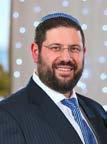
Those of us fortunate to live in and visit Eretz Yisrael are able to see our values etched into the foundations of this Holy Land. As we approach Chanukah, we are reminded of the impor tance of looking to past generations to guide our future. Every time I travel to Gush Etzion on highway 60 and pass Yishuv Elazar, a community named for Elazar HaMaccabi who was killed there; or find myself on route 443 and pass Modi’in and Mevo Modi’in, the areas where the central Maccabi resistance took place, I am grateful for this reminder. There is nothing quite like seeing Chanukah menorot lit in these cities each year.
As the fourth son of Mattityahu, Elazar HaMaccabi fought to save the spiritual life of Am Yisrael and died fighting the Greeks. While today the Maccabim are recognized as heroes, it is important to remember the difficulties and resistance they faced in trying to ensure the continuity of Klal Yisrael. Since their passing, the Maccabim have become a symbol of Jew ish pride and strength, inspiring generations for over 2,000 years.
This past week I attended the azkarah of 1st Lieutenant Uriel Peretz who was born on ז"לשת ולסכב 'ב (November 24, 1976), and killed in battle on the ולסכב 'ז ט"נשת (November 25, 1998) in an ambush in the Wadi Krosh area during the Lebanon war. Uriel and I both learned in Yeshivat
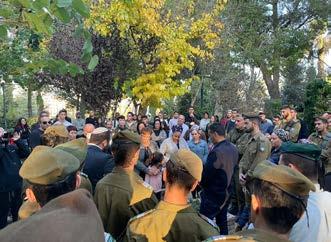
Or Etzion, a Yeshiva high school. And even though I graduated a year before Uriel and studied in the yeshivat Toranit program while he studied in the military track, I am among those who are zoche to have known him in his younger years, and make an effort to attend his azkarah every year.
This year’s azkarah brought a signifi cantly large crowd - one that has grown with every passing year. Each year, Yeshivat Or Etzion sends a group of Military Academy high school 11th graders to take place in the azkarah, wearing a special badge (see picture). While waiting for the azkarah to begin, I began chatting with some men I recognized and quickly real ized we had all graduated from Yeshivat Or Etzion. Perhaps what was most chilling was the way in which we identified our graduating classes. One said, “I was in Uriel Peretz’s grade.” I said, “I was in Shachar Minis’ grade.” And so the pattern continued - each of us naming classmates who died valiantly protecting Am Yisrael during their army service. But before I had time to process what had unfolded before me, Miriam Peretz got up to speak.
For those who do not know Miriam Peretz, aside from being a neighbor of mine in Givat Ze’ev, she is an Israeli educator, public speaker, and the mother of Uriel, Eliraz, Hadas, Avichai, Eliasaf and Bat-El. Tragically, after the loss of Uriel in 1998,
4 TORAH TIDBITS 1495 / VAYISHLACH 5783
Miriam’s husband Eliezer died of ‘a broken heart.’ Just five years later, Miriam’s second son Major Eliraz Peretz was killed in an exchange of fire in the Gaza strip on ןסינב א"י ע"שת (March 26, 2010). Miriam has become a symbol of hope, compassion and faith, and was awarded the Israel Prize in 2018. I encourage you all to read her book Shirat Miriam which is available in both Hebrew and English. You can order a copy online via Gefen Publishing or in bookstores around the country.

Miriam began her speech by sharing stories of Uriel, who dreamed of becoming the first Moroccan chief of staff in the IDF. While he commanded a Golani Brigade Special Forces unit, Uriel was killed before he achieved his dream. However, as Miriam addressed the crowd of more than 200 people, she noted that more people attended this year’s azkarah than the year following Uriel’s passing. Looking around at those gathered, Miriam shared how comforted she felt seeing how many people came to pay their respects to Uriel, most of whom did not know him in his lifetime. Over the last 24 years Uriel’s sacrifice has continued to be publicized, touching countless lives in the years since his passing.
Miriam provided me with a new perspec tive on the conversations I had with my fellow Yeshivat Or Etzion alumni earlier in the day. As members of Am Yisrael we are fortunate to have a rich history filled with people who lived and died protecting Am Yisrael and Torat Yisrael throughout the generations. While heartbreaking, we have each remained connected to our classmates who died protecting Am Yisrael and identify ourselves by the heroes we were zoche to
study beside.
Every Chanukah I think of Uriel. He was born in Kislev and was killed in Kislev, leaving his light forever burning in our hearts. Just like the Maccabim, who con tinue to illuminate our lives thousands of years after their passing, we have an oppor tunity to learn from heroes like Uriel as we forge ahead in our collective mission as an “Or la-goyim.” May we be zoche to recognize the light within each and every Jew in their lifetime and uphold the values of those who have passed.
Wishing you all an uplifting and inspiring Shabbat, Rabbi Avi Berman Executive Director, OU Israel aberman@ouisrael.org

OU ISRAEL CENTER 5
FROM THE DESK OF RABBI MOSHE HAUER OU Executive Vice President


Vayishlach –Yaakov’s Authenticity
Genuineness in our relationships is critical.
At the beginning of our Parsha (32:5) Yaakov instructs his messengers, “This you shall say to my master to Eisav: ‘So said your servant Yaakov: I have sojourned with Lavan….”
We notice that even when speaking privately to his own servants Yaakov refers to Eisav as his master. This would seem odd. Certainly, Yaakov recognized his spiritual superiority and knew as well that he had been given the blessing to rule over his brother. While we can appreciate his adoption of humble language, “your ser vant, Yaacov,” in the diplomatic message he sends his brother, why would he refer to Eisav as his master in private as well?
Clearly, Yaakov was not ready to present or to be represented with a false standard. He would only ask his servants to address Eisav as the master if he would use the same language privately. And he could honestly do so, as – while he was undoubt edly mindful of his moral and spiritual superiority - he retained an awareness of Eisav being the older brother and occupy ing a powerful worldly position relative to Yaakov. When he said it, he meant it (see Ramban there).
This quality carries forward to the next generation as we see in next week’s Parsha (37:4), where we read how the brothers of Yosef could not speak with him peace fully. Rashi notes that while the situation described was negative, it nevertheless highlights their integrity as they did not present themselves as friends while har boring hatred in their hearts.
Our relationships with those around us – family, friends, community, and col leagues – are the fundamental elements of our lives. It is critical that we convey a true sense of those bonds, being real and honest.
6 TORAH TIDBITS 1495 / VAYISHLACH 5783
May the Torah learning in this issue be in loving memory of and תמשנ יוליעל my mother Esther Goldstein ה"ע ה"ע יבצ ןרהא תב רתסא נ"על on her 16th yahrzeit ולסכ א"י Harriet Goldstein-Mark and family Condolences to Jonah Mann and family on the passing of his brother Rabbi Dr. Abraham Mann z"l םילשוריו ןויצ ילבא ראש ךותב םכתא םחני םוקמה
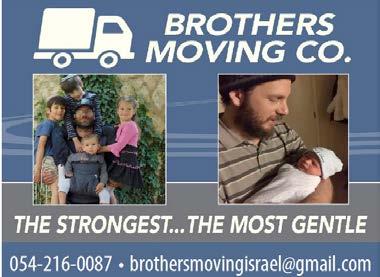


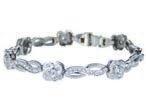








OU ISRAEL CENTER 7 True wholesaler from the diamond boursa with over 25 years experience member diamond dealers club Engagement Rings ∙ Stud Earrings Pendants ∙ Tennis Bracelets 050-573-9061 jeffmor36@gmail.com www.JeffMorDiamondJewelry.com
VAYISHLACH
ALIYA-BY-ALIYA SEDRA SUMMARY
Rabbi Reuven Tradburks Director of RCA Israel Region
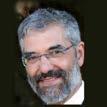
Yaakov’s challenges never seem to end. He returns to the Land of Israel. He is fear ful of a confrontation with Esav. He prepares by dividing his entourage. A man fights him through the night, changing his name to Israel from Yaakov at dawn. Yaakov sends gifts to Esav to appease him. Esav runs, hugs Yaakov, kisses him and cries. Yaakov spurns Esav’s request that they settle together. Dina is raped by Shechem in Shechem. Shimon and Levi kill the men of the city. Yaakov arrives at Beit El, the place of his ladder dream and builds an altar. Rachel dies giving birth to Binyamin. Reuven lies with Bilha. Yaakov is reunited with Yitzchak. Esav’s lineage is outlined.
Yaakov’s life is one of travail. Esav wanted to kill him; he fled for his life. The time with Lavan was full of hard work and deception. He fights with an angel. On his return home, he never reunites with his mother Rivka. He avoids confrontation with Esav. Dina is raped. The city of Shechem is slaughtered. His dear wife Rachel dies in childbirth. And next week Yosef gets sold. We well understand Chazal’s comment at the beginning of next week’s parsha that Yaakov just sought some peace and quiet.
1st Aliya (32:4-13) Yaakov sends messengers to Esav: Tell Esav that his servant Yaakov has been with Lavan. We have much flock. Word comes back that Esav is approaching with 400 men. Yaakov is afraid; splits his entou rage, so at least half will survive. And he prays: While I am undeserving, You prom ised that my progeny would be numerous.
Yaakov does not know what to expect from Esav. Last we heard Esav wanted to kill Yaakov. Yaakov does not know if he still does. Because, there is a crucial lacuna in our story. Way back when Yaakov stole the blessing from Esav, Esav vowed to kill Yaakov. Rivka warned Yaakov to flee. But she also promised him that she would send word when the coast was clear, when Esav no longer sought to kill Yaakov (27:45). But she never did send word. Where’s his mother Rivka? The one who loved him? Yaakov never got word from her that it was safe to return. Now, he did get assurance from G-d to return and that He would be with him. But does that mean Esav still wants to kill him, but that G-d will be with him and protect him? Or that Esav has given up his anger?
2nd Aliya (32:14-30) Yaakov pre pares gifts of his livestock for Esav with the message: from your servant Yaakov. A man fights Yaakov overnight, wounding his thigh. At dawn the man tells him his name is Yisrael, for he fought G-d and man and prevailed.
Yaakov does not know if Esav harbors mur derous intent. If he does, Yaakov attempts to appease him with gifts. Why does he think livestock gifts with a gift card attached, “from your servant Yaakov” will cool Esav’s mur derous intent?
8 TORAH TIDBITS 1495 / VAYISHLACH 5783
KI TEITZEII
but you could possibly do them. For when it comes to communications from G-d, you are unique, irreplaceable, sui generis, one of a kind.


Esav wanted to kill Yaakov because Yaa kov stole the bracha. What was that bracha? (27:28-29) “G-d will give you of the fat of the Land, much grain and wine. And you will rule: your brother will bow to you.” A 3 part bracha: agricultural success, political power and dominance over your brother. Yaakov is telling Esav not to get too worked up about the bracha. Because it never came true. I have no agricultural success, no power and no dominance over you. All I have are ani mals. No land. Certainly no fat of the land. And power? I have been a migrant worker with Lavan. And who is bowing to whom? “From your servant Yaakov”. 3 strikes – no fat of the land, no power, and you are the master, not me. So, no need to fuss over a bracha that was a blank.
3rd Aliya (32:31-33:5) Yaakov wakes with a limp, hence the prohibition of eating the sciatic nerve. He sees Esav. Divides his family. Esav runs to him, hugs, kisses and cries. Yaakov must have sighed a sigh of relief. When he heard that Esav was coming with 400 men, he was convinced Esav still sought to kill him – otherwise, why the brigade? And, I never got word from Mom that Esav doesn’t want to kill me. And then Esav ran, hugged, kissed and cried. What a relief.
This exchange presents a fundamental principle of the Torah: that G-d speaks to Moshe in a way that He does not, nor will He in the future ever do again with anyone else. When Moshe says that people come to him seeking G-d, what he means is: I have access to G-d. He speaks to me. (Speaking to G-d isn’t the trick; the trick is when He answers back.) Similarly, when Moshe says that he teaches G-d’s law, what he means is that G-d communicates those laws to him and to no one else. This could very well be the prime purpose of this Yitro story. For, in the very next story, the giving of the Torah, the very same theme of Moshe’s uniqueness as the one to whom G-d speaks is central.


What changed Esav’s mind? Let’s leave Yaakov’s shoes. And jump into Esav’s. Rivka never sent word of Esav’s change of heart because he didn’t have one. He has every intention to kill Yaakov. Brings his army. But now he has a change of heart. Why? Perhaps he was convinced by Yaakov that the bracha was a dud and so nothing to get worked up about. But the Torah seems silent on this crucial flip.

3rd aliya (18:24-27) Moshe heard. He chose judges, with only the most difficult cases brought to him. Moshe sent Yitro home. It takes an honest leader to accept suggestions to improve. Moshe displays his honesty and humility – if the suggestion is good, embrace it. Just as Yitro accepted the news of the Exodus and affirmed One G-d,



OU ISRAEL CENTER 9
LIVE OPPOSITE THE SEA davidz@AshkelonProperties.com call David at 054-433-2621 www.ashkelonproperties.com C o n t a c t u s f o r t h e l a r g e s t s e l e c t i o n o f s e a v i e w p r o p e r t i e s f o r s a l e o r r e n t . Love this view! So close to shuls & the beach The grandchildren are coming again! Great interior design! This investment is payingreallyoff! kerenmalki.org 02-567-0602
Keren Malki empowers families of children with special needs in Israel to choose home care. Donations are tax-approved in Israel, US and UK. Honoring the memory of Malka Chana Roth ד”יה 1985-2001, killed in the Sbarro bombing.
MarSea Modest Swim & Casualwear www.MarSeaModest.net (NIS) www.MarSeaModest.com ($USD) Marci Rapp 050-424-8359 THE BEST DESIGN, ENGINEERING AND INSTALLATION OF AIR davidz@AshkelonProperties.com LIVE OPPOSITE THE SEA 0544-332621 “It sounded too good said another happy client to be true – a superb sea-view apartment in Anglo-populated Ashkelon for only 15% down – is actually a reality.” Owning your own apartment does not just allow you freedom, but offers monetary savings, and an increase in your investment value. Anglo-populated, sunny Ashkelon is the answer! It’s very affordable – from $500,000 with just a 15% down payment, mortgages available as well as bank guarantees. Rental income often in excess of 3.5%.
Why doesn’t it tell us why Esav changed his mind, gave up his intent to kill Yaakov and hugs him instead?
This leads the Midrash to question the sincerity of Esav’s hugs and kisses. In our written Torah there are dots over each let ter of Esav’s kisses. This is a way of saying – take note, there is more than meets the eye in these kisses. Perhaps these kisses are fleet ing; the murderous intent still lurking.
4th Aliya (33:6-20) Esav is urged to accept Yaakov’s gifts. Esav offers that they live in brother hood. Yaakov demurs, sending Esav ahead, hinting he will catch up. He turns instead toward the land of Israel. He dwells in Suk kot and then in Shechem. He builds an altar and calls in the name of G-d.
Yaakov’s insistence on a complete separa tion from Esav could support the view that Esav’s kisses were insincere. Yaakov saw through the façade and hence wanted a com plete separation.
And while Yaakov may have tried to convince Esav that the bracha of Yitzchak did not come to be, he does not believe that himself. He is convinced he is the heir to the Jewish legacy. He goes to Shechem and builds an altar. Why doesn’t he go immediately to Beit El? Didn’t he make a vow when he had the dream with the ladder that he would return
to that spot? And why didn’t he immediately reunite with his mother and father? Why go to Shechem and not Beit El or Chevron?
He is following in Avraham’s footsteps –literally. Avraham journeyed from Charan; first stop in the land of Israel was Shechem, where he built an altar. Yaakov has just jour neyed from Charan to the Land of Israel, stopping first at Shechem and building an altar. He sees himself clearly as the heir of Avraham, walking in his footsteps.
5th Aliya (34:1-35:11) Dina is raped by Shechem in Shechem.
The brothers claim they will only ally with people who are circumcised. While the men are recovering Shimon and Levi kill them all. Yaakov is upset. But they counter; “can they make our sister a harlot?” G-d tells Yaakov to go to Beit El and make the promised altar. He does. G-d appears to him and tells him his name is Yisrael not Yaakov. And that nations and Kings will come from him.
The story of the rape of Dina is the first story of the next generation. And the broth er’s rhetorical comment will be a clarion for the rest of the book – not what they said
10 TORAH TIDBITS 1495 / VAYISHLACH 5783
Torah
נ"על
Doris Weinberger a"h ולסכ 'ד -ה"ע המלש לאקזחי תב האל הרובד Max Weinberger z”l ולסכ ז"כ -ל"ז בד ןב ךלמילא Greatly missed
their
grandchildren and great grandchildren Rav Aryeh
Bernie
Menachem
In
Rabbi
Herman ל"ז beloved husband, father, grandfather, great grandfather and brother on his fourth yahrzeit, 15 Kislev Charlotte, N'tina, Yehuda, Moshe, Shmuel, Reuven and families ךורב ורכז יהי
May the
learned from this issue of TT be in loving memory and
our dear parents whose yahrtzeits are in Kislev
by
children,
and Dvora Weinberger
and Leah Weinberger
and Hannah Katten
memory of
Shimon
but what they implied. “Can they make our sister a harlot?” meaning, and we, her broth ers stand idly by? No. We stand up for our siblings. Thus begins the rest of the book – brothers standing up for brothers. And while they stand up for Dina, they fail to stand up for Yosef.
Yaakov’s reaction to the slaughter of Shechem is also instructive. He criticizes the violence for it will impede good rela tions with the people of the Land. Yaakov may think that the Divine promise of the Land is about to unfold in his time. The promise made to Avraham at the Brit bein Habetarim: your children will be strangers in a foreign land, enslaved, oppressed and only after a long time will return here. Yaa kov was kind of a slave in a foreign land, was oppressed there – perhaps then the promise of the land is to unfold in his time. And for that, bad relations with the people are a bad thing.

6th Aliya (35:12-36:19) G-d affirms the promise of the Land to Yaakov. Yaakov builds altars, traveling south. Rachel dies while giving birth to Binyamin. Reuven lies with Bilha. Yaakov goes to Chevron, to Yitzchak. Yitzchak dies at age 180, buried by Esav and Yaakov.
The pivot to the story of Yaa kov’s children is occurring. But it will proceed without Rachel, Yaakov’s dear wife. Women have played a dominant role until here. Rachel’s death deprives Yaakov of the wise feminine voice that Avraham had with Sarah and Yitzchak had with Rivka. Would

 RABBI
RABBI

OU ISRAEL CENTER 11
GET A PROFESSIONAL VISION EXAM 02-674-3888 FREE exam with purchase USING THE MOST ADVANCED DIAGNOSTIC EQUIPMENT Multifocal Experts Contact lens fittings Satisfaction guaranteed! • Wide selection of beautiful frames You Deserve a Professional Vision Exam Please call for an appointment Macabi and Meuchedet benefits 12 TORAH TIDBITS 1440 / CHAYEI SARA 5782
Knesset When Avraham addresses the people of Cheit, trying to “Ger V’Toshav Anochi Eimachem” (23:4) “A Stranger and This seems to be a contradiction. If one is a stranger than The Magid of Dubno (Jacob ben Wolf Kranz 1741-1804) this tense situation in order to, both, state his truth and be said, on the one hand, “I am a Resident’ due to G-d’s promise need your agreement to purchase a plot. In other words, Avraham “strangers”, while they understood him as saying that “they” The peace was kept, and Avraham remained true to his completes the generational transfer – He
be
and
BY
Rav, Beit
blesses Yitzchak. The Jewish people will
Yitzchak
not Yishmael. tions of Yishmael are enumerated. Yishmael dies. His ous and powerful offspring. The brevity and began father’s that his icant the
Yosef have had that special coat, had Yaakov had Rachel’s counsel?
7th Aliya (36:20-43) Esav’s descendants are enumerated: nations and kings.
As with Yishmael, Esav’s family is detailed. This is the end of the story of who is in the Jewish people and who out. The rest of the Torah is the story of Yaakov and his family, all of whom are the Jewish people.
HAFTORAH VAYISHLACH
OVADIAH 1:1-21
This week’s Haftorah taken from the book of Ovadiah describes the punishment that will ultimately be brought upon Edom, the descendant of Esav. This theme relates directly to Esav’s conflict with Yaakov which is highlighted in the Torah reading.
The navi Ovadiah is a convert to Judaism and had his own roots in the Edomite people. The Edomites did not offer to help Judea when they were attacked by the Bab yloninans. Many years later the Edomites, who are associated with the Roman Empire,
A SHORT VORT
“Then Yaakov was greatly afraid” (32:8) (ח:בל) דאמ בקעי ארייו
were responsible for destroying the Second Beit Hamikdash and caused untold suffer ing and pain upon the Jewish nation.
Although the Roman Empire was one of the most formidable and powerful nations to rule the world, the prophet of Israel reveals the following: “The house of Yaa kov shall be fire and the house of Yosef a flame, and the house of Esav shall become stubble, and they shall ignite them and con sume them…”.
The Haftorah then describes the divi sion of Esav’s land amongst the returning
STATS
8th of 54 sedras; 8th of 12 in B’reishit Written on 237 lines; rank 11th 9 Parshi’ot - 6 P’tuchot; 3 S’tumot 153 p’sukim - 4th (1st in B’reishit), tied with No’ach, but more words and letters 1976 words - 6th (4th in B’reishit) 7458 letters - 6th (4th in B’reishit)
MITZVOT
One mitzvah in Vayishlach , one of 3 in the book of B’reishit. The only prohibition of the Torah’s 365 in B’reishit - Gid HaNasheh
BY RABBI CHANOCH YERES R av, Beit Knesset Beit Yisrael, Yemin Moshe
What was Yaakov afraid of while preparing his encounter with Eisav?
The Midrash Rabbah points out that Yaakov was very concerned that Eisav, a descendant of Avraham, was fulfilling the Divine command of living in Israel, whilst Yaakov lived abroad.
Rabbi Shmuel Mohilever (1824-1898, Founders of Hovevei Zion Movement) asks a question: Why was Yaakov fearful of Eisav’s one Mitzvah of living in Israel when he (Yaakov) lived with Lavan and “Garti (lived)” in numerical value equals 613 (Rashi), postulating that Yaakov fulfilled all the 613 commandments?
From here you can see how the Mitzvah of “Dwelling in the Land of Israel”, even if fulfilled by a non-Jew, can rival a righteous Jew’s fulfillment of many mitzvot. How much more so, a Jewish person who accomplishes the command of Living in Eretz Yisrael himself is cherished by the Holy One Above. As the Yalkut Shimoni (3) quotes: “G-d says if only my people would settle the land of Israel, even if they would cause impurity to it.” Shabbat Shalom
12 TORAH TIDBITS 1495 / VAYISHLACH 5783
well known


“And


and our next step will be to plant a fruit tree. I never thought of myself as being the agricultural type, but the feeling of settling and planting a portion of Eretz Yisrael, has been truly euphoric. Iy”H, when we plant our tree, and eat the fruits that will grow one day, I think we will be able to truly appreciate that unique Kedusha found in To conclude, when you buy your Tu B'shvat fruit this year, don’t search for those dried apricots and banana chips imported from Turkey. Rather, head over to the fresh produce and buy yourself some nice juicy Kedusha-filled Jaffa oranges and thank in , imbibing that Kedusha in every bite that
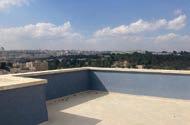
shall ascend Mount Zion to judge the moun tain of Esav, and the Lord shall have the kingdom.”

OU ISRAEL CENTER 13 OU ISRAEL CENTER 75
072-397-0226 www.platinumr.co.il | sales@platinumr.co.il BER 4 LIVE JERUSALEM Apartments are ready The perfect project in the perfect location. NEW APARTMENTS FOR SALE ON HARAV BERLIN ST. High end building specs Stunning penthouse with rooftop Quiet central location Great views Prices start at: 3,650,000 ₪ exiles. This memorable haftorah
with
ends
the
verse:
saviors
THE PERSON IN THE PARSHA
BY RABBI DR. TZVI HERSH WEINREB OU Executive Vice President, Emeritus
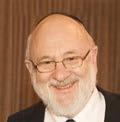
See You Later
There is an expression that we often use when we say goodbye. Most of us pay no attention to what we are saying. I doubt that very many of those who use the expression really mean it.
I refer to the words, “See you later.” I am quite confident that everyone reading this column has said these words of farewell to someone whom he wished he would never see again.
Seldom do we consider, “See you later” as a promise of a reunion or a commitment to a subsequent encounter.
I find it fascinating that this expression has its equivalent in other languages. In Hebrew, for example, we say, “Lehitra’ot,” which implies that we anticipate seeing each other again in the future. The German, “Aufwiedersehen,” conveys an even stronger degree of intention to meet again.
It is not surprising that we ordinary folk occasionally use language loosely and do not literally mean to fulfill every casual remark that we make. But it is surprising to find a biblical character using the same expression. Surely, the Bible does not trou ble itself to record casual remarks.
In this week’s Torah portion, Parshat Vayishlach (Genesis 32:4-36:43), we find the patriarch Jacob using just such an expres sion. The careful reader of this week’s
parsha faces the dilemma of either view ing his remarks as mere empty words, or worse, seeing in them a deliberate attempt at deception.
I refer to the passage at the very end of the narrative of the dramatic encounter between Esau and Jacob after a separation of many years. Surprisingly, the encounter concludes on a peaceful note, in which Esau suggests, “Let us take our journey, and let us go together…”
Jacob responds, and rendering his lan guage into contemporary conversational English, he says, “You go first, and because of the kids and the cattle, I’ll follow slowly. I’ll see you later, in Seir, your mountain retreat.”
The reader of this passage cannot help but anticipate that we will read, at some point in the narrative, of how Jacob indeed sees Esau later, in Seir. After all, he promised to follow, albeit slowly, and to reunite with Esau at Mount Seir, his home base.
But we never read of such a reunion; not in this week’s Torah portion and not any where else in the entire Bible. Jacob says, “See you later,” but that “later” never occurs.
Our Sages were troubled by this seeming gap in the narrative. They provide us with several explanations.
Rashi suggests that Jacob was trying to avoid any further encounters with his brother, assuming that he would treacherously abandon his feigned brotherly façade.
14 TORAH TIDBITS 1495 / VAYISHLACH 5783
In other words, he told Esau to go ahead with no intention of following him all the way to Seir.
Jacob’s “See you later” was thus a ruse. He was justifiably resorting to deception in the interests of self-defense.


The Talmud in the tractate of Avoda Zara 25b actually advises all who find themselves threatened by suspicious companions while on the road to resort to Jacob’s tactic. The Talmud advises that when one is confronted by such a companion, he should inform him that his destination is far off and not disclose that his true destination is a much closer one. This is not an uncommon example of the practical advice that the Talmud often gives to those who face the difficulties that Jews have faced throughout our history. But the rabbis have an alternative approach to Jacob’s “See you later.” This approach insists that Jacob used those words in all sincerity, with no guile what soever. Rather, he was predicting that whereas a true reunion of Jacob and Esau was not likely to happen in their lifetimes, there would come a time when that reunion would happen.
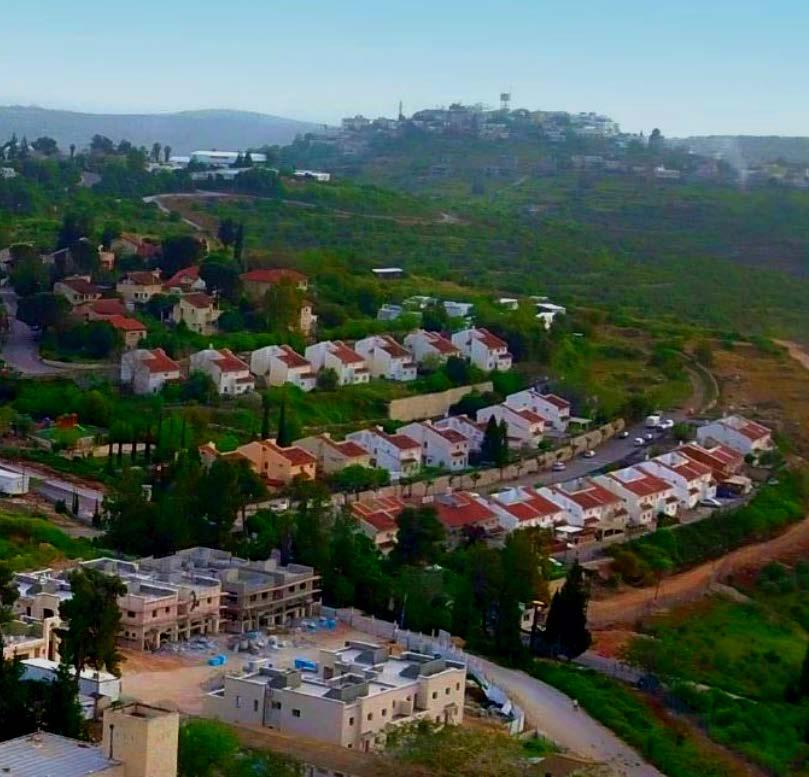
That time will be in the distant future. Then, the descendants of Jacob, the Jewish people, and the descendants of Esau, the historical enemies of the Jews, will indeed meet again, at the time when the Esaus of the world will be judged, finally and fairly.
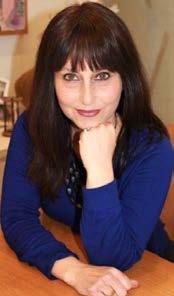
This ultimate “reunion” was foretold by the Prophet Obadiah in the very last verse of his Book: “For liberators shall march up on Mount Zion to judge Mount Esau; and dominion shall be the Lord’s” (Obadiah 1:21).
In this light we come to see that Jacob
OU ISRAEL CENTER 15
New Anglo Community New Anglo Community Spearheaded by YU Spearheaded by YU Alumnae, Family & Friends Alumnae, Family & Friends Unique offer to buy and build a community together in Israel Limited number of units in ISRAEL'S REAL ESTATE ISRAEL'S REAL ESTATE ISRAEL'S ESTATE MATCHMAKER MATCHMAKER MATCHMAKER Contact us for more information:
was not using the expression “See you later” loosely or casually, and certainly not deceptively. Rather, he was peering into the messianic future and envisioned a time when Jacob and Esau would come together, if only for a final reckoning.
Does this final reckoning mean victory for Jacob and defeat for Esau? It is often assumed that this is exactly what is meant, and such a conclusion is warranted by a literal reading of some of the concluding verses of the book of Obadiah; for example, verse 18: “The House of Jacob shall be fire… And the House of Esau shall be straw…”
But Rabbi Joseph H. Hertz, in his (regrettably underutilized) commentary on the Pentateuch, suggests otherwise and makes the following hopeful statement:
“There is no record that Jacob went to Seir to see his brother. But, add the rabbis, Jacob will yet visit Esau on the day of the Messiah, when the reconciliation between Israel and Edom will be complete.”
The medieval commentator Rabbeinu Bachya finds a hint in the Hebrew words which Jacob uses to say “See you later (until I come unto my lord unto Seir),” which suggests the messianic meaning behind the words. He points out that the final letters of the words which constitute that phrase spell out the name Elijah, who, in our tradition, is the herald of the Messiah.
It is safe to conclude with the assumption that most uses of the term “See you later” have no significance. However, Jacob’s use of the term had great significance. It gives us occasion to reflect upon the millennia of hostility that existed between Jacob and Esau, and upon the prophecy that that hos tility would eventually end.
Be’er Tziporah a"h - Bottled Water Gemach
Walking down King George St. in Jerusalem and want a cold bottle of water?
Come help yourself to a bottle at 52 King George.
In loving memory of Yoni’s wife Tziporah a"h, a true Eishes Chayil, always full of chessed, kindness and laughter, and brought life and strength to so many people, that she touched! She was like Aron, who loved peace and pursued peace.
Yoni thanks Hashem for having the opportunity of having Tziporah in his life, to learn of her caring, patience and happiness, to overcome her challenges. May Tziporah's Neshama be a light onto the world, in a time of darkness, and may her Neshama shine to Gan Eden. Yoni misses Tziporah with tears in his eyes, as Hashem gave him a gift, a crown jewel, now he returns her to Hashem. With thanks and Toda. Love, Yoni To help refill the supplysend tax deductible donations for Be’er Tziporah a"h Bottled Water Gemach to Chabad of RechaviaRabbi Yisroel Goldberg email Rabbi@JerusalemChabad.org 02 800-1717 www.JerusalermChabad.org/DonateShekels

16 TORAH TIDBITS 1495 / VAYISHLACH 5783
בוט יכ 'הל ודוה In Loving Memory of Louis Denkberg ל”ז ל“ז גרבקנד לטיגו ןויצ ןב ןב רזעילא Husband, father, grandfather and great-grandfather, on his 3rd yahrzeit He is greatly missed - ךורב ורכז יהי The Denkberg and Bar-Lev families 5th



OU ISRAEL CENTER 17 CHANUKAH WITH HOD DENYA! Come visit and raise a toast with us to celebrate the return to Jerusalem, in Hod Denya. Come and see our model apartment, and find out what it takes to live in a five star hotel for the rest of your life! (Hint: not too much!) 20.12.2022 11:00 - 15:00 21 Golomb st. Jerusalem Hod Denya Jerusalem Assisted Living For details and registration: 02-5001177 21 Golomb St., Jerusalem | Search Hod Denya on www.hoddenya.com Rabbi Dr. Nachum Amsel 0522-52-00-31 Namsel@netvision.net.il Tuesday
COVENANT & CONVERSATION
Thoughts on the Weekly Parsha from RABBI
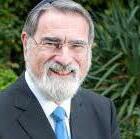
Feeling the Fear
It is one of the most enigmatic episodes in the Torah, but also one of the most import ant, because it was the moment that gave the Jewish people its name: Israel, one who “wrestles with God and with men and pre vails” (Gen. 32:28).
Jacob, hearing that his brother Esau was coming to meet him with a force of four hundred men, was terrified. He was, says the Torah, “very afraid and distressed” (32:7). He made three forms of preparation: appeasement, prayer, and war (Rashi on v. 9). He sent Esau a huge gift of cattle and flocks, hoping thereby to appease him. He prayed to God, “Rescue me, I pray, from the hand of my brother” (v. 11). And he made preparation for war, dividing his household into two camps so that one at least would survive.
Yet he remained anxious. Alone at night he wrestled with a stranger until the break
of dawn. Who the stranger was is not clear. The text calls him a man. Hosea (Hos. 12:5) called him an angel. The Sages said it was the guardian angel of Esau.1 Jacob himself seems sure that he has encountered God Himself. He calls the place where the strug gle took place Peniel, saying, “I have seen God face to face and my life was spared” (Gen. 32:30).
There are many interpretations. One, however, is particularly fascinating in terms of both style and substance. It comes from Rashi’s grandson, Rabbi Shmuel ben Meir (Rashbam, France, c. 1085–1158). Rashbam had a strikingly original approach to bib lical commentary.2 He felt that the Sages, intent as they were on reading the text for its halachic ramifications, often failed to penetrate what he called omek peshuto shel mikra, the plain sense of the text in its full depth.
Rashbam felt that his grandfather occa sionally erred on the side of a midrashic, rather than a “plain” reading of the text. He tells us that he often debated the point with Rashi himself, who admitted that if he had the time he would have written 1 Genesis Rabba 77:3.
He expounds on this in his commen tary on Genesis 37:2.
18 TORAH TIDBITS 1495 / VAYISHLACH 5783
תומשנ יוליעל ה״ע זייא דוד לארשי תב הדלוגו רשא בקעי ןב סחנפ ה״ע רטרש קחצי תב הינעמו בייל הירא ןב לאירזע
2
LORD JONATHAN SACKS ZT"L Former Chief Rabbi of the United Hebrew Congregations of the Commonwealth
May the learning of these Divrei Torah be תמשנ יוליעל HaRav Ya'akov Zvi ben David Arieh zt"l
further commentaries to the Torah in the light of new insights into the plain sense that occurred to him “every day.” This is a fascinating insight into the mind of Rashi, the greatest and most famous com mentator in the entire history of rabbinic scholarship.
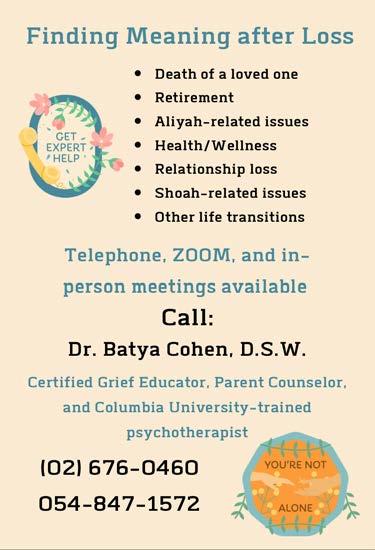

All of this is a prelude to Rashbam’s remarkable reading of the night-time wres tling match. He takes it as an instance of what Robert Alter has called a type-scene, 3 that is, a stylised episode that happens more than once in Tanach. One obvious example is a young man meeting his future wife at a well, a scene enacted with variations three times in the Torah: in the case of Abraham’s servant and Rebecca, Jacob and Rachel, and Moses and Zipporah. There are differences between them, but sufficient similarities to make us realise that we are dealing with a convention. Another example, which occurs many times in Tanach, is the birth of a hero to a hitherto infertile woman.
Rashbam sees this as the clue to under standing Jacob’s nighttime fight. He relates it to other episodes in Tanach, two in par ticular: the story of Jonah, and the obscure episode in the life of Moses when, on his way back to Egypt, the text says, “When they were in the place where they spent the night along the way, God confronted Moses and wanted to kill him” (Ex. 4:24). Zipporah then saved Moses’ life by performing a brit on their son (Ex. 4:25–26).4
3 See Robert Alter, The Art of Biblical Narrative (New York: Basic Books, 1981).
4 Rashbam on Genesis 32:29. Rashbam also includes the episode of Balaam, the
OU ISRAEL CENTER 19
Weisman Former Assist.
Weight loss Consultation +972 53 472 2159 Author of The 18% Solution –Lose 18% of Your weight in 18 Weeks
Dr. Harry
Clinical Professor of Medicine, UCLA School of Medicine; Div. of Endocrinology & Metabolism
Most exquisite properties in Jerusalem!!


New Listing! On the exquisite Dubnov St. in Talbieh, private 135m cottage, totally renovated with 65m private landscaped garden, view from balconies, a real gem! MAYA - 054-6650184
Magnificent Authentic private house on a small dead end of Baka - 650m built on 3 levels with huge basement, 750m plot with wonderful landscaped garden, thoughtful layout, an abundance of light,a unique property!
DEBORAH - 054-4804767
Luxurious garden apartment on a small lane of Old Katamon, 340m built on 2 levels, 8 rooms, separate unit with separate entrance, high ceilings, full of charm, very quiet & bright, 130m private garden, top of the line finishes, close to the park DEBORAH- 054-4804767
In a small lane of the German Colony, Garden apartment with private entrance, 250m with private garden, parking, high ceilings, in an Authentic beautiful 3 apartment building MAYA – 054-6650184
Beautiful new penthouse in Greek Colony- 190m with 80m terraces, succah, beautiful views, 5 rooms, elevator, parking, renovated at very high standard, spacious living areas and huge kosher kitchen MAYA – 054-6650184
On the edge of The German Colony - Unique Authentic building of 700m built on a huge plot of 1,200m - perfect for an apartment building or a tremendous private house. DEBORAH - 054-4804767
Private small building in Baka, Shimshon St. 300m with additional building rights, huge private garden, divided into 3 units so can be private house of 3 separate apartments, very attractive price DEBORAH - 054-4804767
On the exquisite Elcharizi St., Rechavia, new project, new 280m penthouse, 100m terraces, finishes and layout according to buyer requests!
DEBORAH - 054-4804767
Ben Maimon St. Duplex new apartment, 5 bedrooms, 4 ensuite, 4 terraces, private parking, Shabbat elevator, all renovated, 3 exposures, very sunny!! DEBORAH-054-4804767
It is the story of Jonah that provides the key to understanding the others. Jonah sought to escape from his mission to go to Nineveh to warn the people that the city was about to be destroyed if they did not repent. Jonah fled in a boat to Tarshish, but God brought a storm that threatened to sink the ship. The prophet was then thrown into the sea and swallowed by a giant fish that later vomited him out alive. Jonah thus realised that flight was impossible.
The same, says Rashbam, applies to Moses who, at the burning bush, repeatedly expressed his reluctance to undertake the task God had set him. Evidently, Moses was still prevaricating even after beginning the journey, which is why God was angry with him.
So it was with Jacob. According to Rash bam, despite God’s assurances, he was still afraid of encountering Esau. His courage failed him and he was trying to run away. God sent an angel to stop him doing so.
It is a unique interpretation, sobering in its implications. Here were three great men, Jacob, Moses, and Jonah, yet all three, according to Rashbam, were afraid. Of what? None was a coward.
They were afraid, essentially, of their mis sion. Moses kept telling God at the burning bush: Who am I? They won’t believe in me. I am not a man of words. Jonah was reluc tant to deliver a message from God to Israel’s enemies. And Jacob had just said to God, “I am unworthy of all the kindness and faith that You have shown me” (Gen. 32:10).
donkey, and the angel as a further instance of this type-scene.
20 TORAH TIDBITS 1495 / VAYISHLACH 5783
T&T INVESTMENTS 02-6744000 0544-804767 King David St. 26 www.real-estate-jerusalem.co.il LEADING BOUTIQUE REAL ESTATE FIRM,
O n M e n d e l e S t . T a l b i e h ,
completely renovated,
•
JERUSALEM
lovely, 4 rooms
3 baths, lobby,
Nor were these the only people in Tanach who had this kind of fear. So did the prophet Isaiah when he said to God, “I am a man of unclean lips” (Is. 6:5). So did Jeremiah when he said, “I cannot speak: I am a child” (Jer. 1:6).
This is not physical fear. It is the fear that comes from a feeling of personal inadequacy. “Who am I to lead the Jewish people?” asked Moses. “Who am I to deliver the word of God?” asked the prophets.
“Who am I to stand before my brother Esau, knowing that I will continue the covenant and he will not?” asked Jacob. Sometimes the greatest have the least self-confidence, because they know how immense is the responsibility and how small they feel in relation to it. Courage does not mean having no fear. It means having fear but overcoming it. If that is true of physical courage it is no less true of moral and spiritual courage.
Marianne Williamson’s remarks on the subject have become justly famous. She wrote:

Our deepest fear is not that we are inad equate. Our deepest fear is that we are powerful beyond measure. It is our light, not our darkness that most frightens us. We ask ourselves, Who am I to be brilliant, gorgeous, talented, fabulous? Actually, who are you not to be? You are a child of God. Your playing small does not serve the world. There is nothing enlightened about shrinking so that other people won’t feel insecure around you. We are all meant to shine, as children do. We were born to make manifest the glory of God that is within us. It’s not just in some of us; it’s in everyone. And as we let our own light
Jerusalem Real Estate is My Business
Eta: 054-723-3863 Rachel: 052-546-6425
Amazing stand alone homes in OLD KATAMON, TALBIYA, BAKA, GERMAN COLONY

Great investment property TALBIYA. Completely renovated with 2 bedrooms and 2 bathrooms. Beautiful terrace off the living room. Second floor. Churchland 2051 (getting resolved). Price 2,400,000 NIS
Yemin Moshe beautiful property over 300 sqm. 2 private entrances (complete separate unit over 90 sqm). large garden. Close to parking & gorgeous architectural design newly renovated. Call for more info
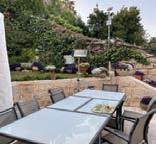
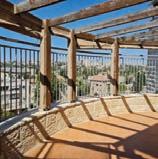

In the heart of BAKA enclosed in a magical courtyard: 3 bedrooms 2 full bathrooms one flight up. Beautiful spacious sukka terrace facing open gardens Completely renovated with architectual design & high level finishes. 6,250,000 NIS
BAKA Penthouse. 154 sqm on one floor with 4 bedrooms and 2 full bathrooms. Shabbat elevator, 2 underground parking and 3 storage units!!! 25 sqm Sukka terrace off living room plus large roof top terrace. 6,650,000 NIS
GERMAN COLONY 145 sqm apt. Duplex unit that is 1/3 of a private Templar house. Large salon/dining/ kitchen (open floor plan), 4 bedrooms (2 ensuite on main floor, 2 upstairs), study, 3.5 baths. House is in Tabu, private garden 135 sqm. 11,000,000 NIS
Eta Morris Realty, Ltd. etamorrisrealestate@gmail.com
Eta: 054-723-3863 · Rachel: 052-546-6425 etamorrisrealty.co.il
OU ISRAEL CENTER 21
shine, we unconsciously give other people permission to do the same. As we are lib erated from our own fear, our presence automatically liberates others.5

Shakespeare said it best: “Be not afraid of greatness: some are born great, some achieve greatness, and some have greatness thrust upon ’em.”6
I sometimes feel that, consciously or subconsciously, some take flight from Judaism for this very reason. Who are we to be God’s witness to the world, a light to the nations, a role model for others? If even spiritual giants like Jacob, Moses, and Jonah sought to flee, how much more so you and I? This fear of unworthiness is one that surely most of us have had at some time or other.
The reason it is wrong is not that it is untrue, but that it is irrelevant. Of course we feel inadequate for a great task before we undertake it. It is having the courage to undertake it that makes us great. Leaders grow by leading. Writers grow by writing. Teachers grow by teaching. It is only by overcoming our sense of inadequacy that we throw ourselves into the task and find ourselves lifted and enlarged by so doing. In the title of a well-known book,7 we must
5 Marianne Williamson, A Return to Love (New York: HarperCollins, 1992), 190.
6 William Shakespeare, Twelfth Night, act 2, scene 5.
7 Susan Jeffers, Feel the Fear and Do It

“feel the fear and do it anyway.”
Be not afraid of greatness: that is why God wrestled with Jacob, Moses, and Jonah and would not let them escape. We may not be born great, but by being born (or converting to become) a Jew, we have greatness thrust upon us. And as Marianne Williamson rightly said, by liberating ourselves from fear, we help liberate others. That is what we as Jews are meant to do: to have the courage to be different, to challenge the idols of the age, to be true to our faith while seeking to be a blessing to others regardless of their faith.
For we are all children of the man who was given the name of one who wrestles with God and with men and prevails. Ours is not an easy task, but what worthwhile mission ever was? We are as great as the challenges we have the courage to under take. And if, at times, we feel like running away, we should not feel bad about it. So did the greatest.
To feel fear is fine. To give way to it, is not. For God has faith in us even if, at times, even the best lack faith in themselves.
Anyway (New York: Random House, 2017).
These weekly teachings from Rabbi Sacks zt”l are part of his ‘Covenant & Conversa tion’ series on the weekly Torah teaching. With thanks to the Schimmel Family for their generous sponsorship, dedicated in loving memory of Harry (Chaim) Schimmel. Visit www.RabbiSacks.org for more.
22 TORAH TIDBITS 1495 / VAYISHLACH 5783


OU ISRAEL CENTER 23
PROBING THE PROPHETS
BY RABBI NACHMAN (NEIL) WINKLER Faculty, OU Israel Center
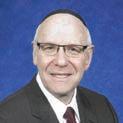
REBBETZIN SHIRA SMILES
So….when did we start reading the haftarah; that is, during which his torical period did the custom of reading a selection from the Nevi’im section of the Tanach? Rabbinic Scholars offer dif ferent suggestions. Some suggest that the custom arose at the close of the prophetic era and others pinpoint the time as the period of Ezra. The Abudraham (14th Century, Italy) writes that the reading of the haftarot was established as a “replacement” for the pub lic reading of the Torah, a practice that was prohibited during the Seleucid Dynasty (312 BCE – 63 CE). Regardless of when the practice itself began, what would be read varied for many years. Although the Mishna delineates a number of haftarot that should be read on certain occasions, the choices for the bulk of the other haftarot depended upon one’s geo graphic region or family tradition. [In fact, Rav Yosef Karo writes that there is no set order for which selection should be read and each person who reads the haftarah chooses any fitting portion that he prefers!!!!]
Interesting, but what does that have to do with this week’s haftarah? In preparing this message, I was struck by the fact that three-quarters of this haftarah focuses on the prophet’s message to the nation of Edom
Rabbi Chanoch Yeres
– not upon Israel! I do not recall any other haftara that is read in shul but is not perti nent to the very audience that is listening!

Tribute to the Trio
After all, the parasha has many stories that could be used as a springboard for a pro phetic teaching: Ya’akov’s fear of Eisav and his eventual rapprochement with him, his struggle with the angel, the story of Dinah, the addition of “Yisrael” to Ya’akov’s name, etc.etc. And yet Chazal chose to comment on the generations of Eisav, on Eisav/Edom – but not on Ya’akov/Yisrael??!!
In a deeply powerful scene, Moshe Rabbeinu is found with his hands held high on top of the mountain praying for the people gripped in a raging battle with Amalek below. Ahron and Chur stood on either side of Moshe Rabbeinu holding his hands aloft (Shemot 17;10). Rashi teaches that Chur was the son of Moshe’s sister, Miriam. What more do we know about Chur? What is the symbolism of his joining with Ahron to support the hands of Moshe Rabbeinu?
I would like to suggest that our Rabbis’ choice had much to do with our nation’s his tory. I have mentioned in past articles that Edom, the nation of Eisav, was an ongoing nemesis to Israel. Indeed, the enmity dis played by Edom to Yisrael was so intense that they became the very symbol of every enemy of Israel, something to which Ovad’ya hints when, while speaking of Edom, he includes the punishments awaiting “all the nations” who opposed Hashem’s chosen people. In fact, when we study the prophe cies of Yirmiyahu, Amos and Yechezkel, we find that the name “Edom” is often used as a general term for the foes of Israel-even those who, according to some commentaries, tor mented Israel during the second Temple
on stood and teach people calf Chur, person like qualities relationships path, whenever service shamayim example These Rabbeinu approaches have Amalek,
24 TORAH TIDBITS 1495 / VAYISHLACH 5783
26 TORAH TIDBITS / BESHALACH 5781
Rabbi Winkler's popular Jewish History lectures can be viewed by visiting the OU Israel Video archive: https://www.ouisrael.org/video-library
For In 4 elevator, character, of For house, renovation, bathroom, asking Thank you to
for the much-appreciated
afternoon shiurim which will resume
Rabbi Roberts in Through the Prism of Torah explains that Ahron and Chur personified contrasting character traits. Ahron was a peacemaker, he constantly looked for ways to create harmony among his people. Indeed, he was ready to compromise his own values to achieve this goal, as we see in the story of the sin of the golden calf. Chur, in April/May
Shabbat
Iy"h
when the nation of Edom no longer existed!
And this gets us to the point. Following the domination of the Seluecid/Greek empires, it was Rome who lorded over the entire region, Rome who passed oppressive laws against the Judean State and Rome, who eventually, destroyed the second Temple. Rav Shimshon Rapha’el Hirsch explains that during the early years of Roman reign the Jews started referring to Rome as “Edom” – not due to any actual biological relationship but because of what Chazal saw in the very nature of that nation. As Rav Hirsch put it, they saw in the dynamic forces and principals of Rome – in its unparalleled greatness that built its Empire – “a cleverness and power unhin dered by scruples of right or humaneness”. It was in this that our Rabbis saw the connection to Esau – to his power as a hunter and his cunning, described with his description of having of “tzayid b’fiv”-trapping others with his mouth.
When we consider Chazal’s identification of Edom as the symbol of Israel’s eternal enemies, we well understand why they took the opportunity of using this parasha to teach future generations the comforting message of the last p’sukim.
Most significantly, however, is the final verse that teaches us “V’alu moshi’im b’Har Tziyon lishpot et Har Eisav…”-that Edom will be judged and punished through Israel and only then, with the fall of these enemies, “v’hay’ta LaShem Ham’lucha”, G-d alone will reign over all of mankind.
Xtreme Klean
Expert upholstery cleaning Couches - Chairs - Carpets professional and courteous Aaron Sokol 050-979-9934


Eiferman Properties Ltd.
www.eifermanrealty.com
FOR SALE - NEW LISTINGS
SHAAREI CHESSED / RECHAVIA
Prime Apartments! Prime Location!
* Renovated 110 sqm 3 bedroon apt, 1st oor, A/C + underoor heating, 3 air exposures, succah balcony NIS 6,500,000
* Beautifully designed 125 sqm 3 bedroom apt + 50 sqm succah balcony. Shabbat elevator, parking and view. NIS 12,600,000
* Archtecturally designed 228 sqm duplex penthouse, 4 bedrooms + 30 sqm succah balcony. Shabbat elevator, parking and a view.
GERMAN COLONY
Beautiful duplex 5.5 rooms, private entrance!
OLD KATAMON
In a small building, 125 sqm, private entrance
3 exposures, Excellent potential, NIS 4,300,000
HAR NOF
* 4 Rooms with building permits, succah, view!
* 5 Rooms, renovated, large succah, view!
RENTALS - OLD KATAMON :
* Renovated 3 bedrooms, fully furnished, succah, storage!
* 4 Bdrms, duplex penthouse, succah, private elevator.
FOR MANY MORE PROPERTIES:
02-651-4030
OU ISRAEL CENTER 25
Yearning to Fulfill Mitzvot
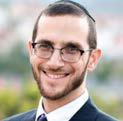
I have sojourned with Laban, and I have tarried until now. (Bereshit 32:5)
Yaakov sends messengers to greet Esav and requests that they communicate spe cific information to him. Based on the pasuk above, Rashi explains the content of the message: ג”ירתו יתרג עשרה ןבל םע רמולכ ,ג”ירת אירטמיגב יתרג םיערה וישעממ יתדמל אלו יתרמש תוצמ
Garti has the numerical value of 613. That is to say: I lived with the wicked Lavan, but I kept the 613 commandments.
It seems a bit of a stretch for Yaakov to claim that he fulfilled all 613 mitzvot. He was not able to perform mitzvot hatluyot ba’aretz while in chutz la’aretz (teruma, ma’aser etc). Hazal even highlight else where that Yaakov feared Esav would have the upper hand since Esav fulfilled the mitzva of kibbud av v’em, while Yaacov was unable to do so for the past 20 years! So how can Yaakov make a statement that he kept taryag mitzvot when it is impossi ble for him to have done so?
Some commentators suggest that although one cannot actually perform a mitzva, by learning about the mitzva, it is as if one has fulfilled the mitzva. The
Chatam Sofer offers an alternative sug gestion. The term attributed to Yaakov is taryag mitzvot shamarti. The word shamarti may be understood to mean “to perform” or “to keep”. However, in several other contexts the root shamar has a dif ferent implication. In next week’s parsha after Yosef reveals his dreams to his brothers, the Torah tells us: רָֽבָּדַה־תֶא רַמָׁש וי ִבָאְו –but his father awaited the matter. The Chatam Sofer explains that Yaakov waited with anticipation for Yosef’s dream to become reality.
The Chatam Sofer interprets the word “shamar” in a similar fashion in another context as well. The Torah dictates: ינב ורמשו תבשה תא לארשי – the literal translation may be that “Bnei Yisrael shall keep (observe) the Shabbat”. The Chatam Sofer interprets the word “v’shamru” to reflect that all week long we are to yearn with anticipation for the Shabbat to arrive.
When Yaakov is attributed with stating “taryag mitzvot shamarti”, the intention is that although he could not fulfill all 613 commandments, he yearned with anticipation the day he would be able to perform the mitzvot that he was unable to currently fulfill.
We ought to experience the same thirst and enthusiasm when performing mitzvot. To yearn for those mitzvot that we are yet unable to fulfill and to appreciate and be excited when we engage in mitzvot.
26 TORAH TIDBITS 1495 / VAYISHLACH 5783
RABBI SHALOM
Rav Kehilla, Nofei HaShemesh Maggid Shiur, Daf Yomi, OU.org Senior Ra"M, Kerem B'Yavneh
ROSNER
הָּתָֽע־דַע רַחֵאָֽו יִּתְר ַּג ן ָבָל־םִע
On Chanuka we will recite the bracha of “she’hechiyanu, v’keyemanu, v’hegiyanu lazman hazeh”. We express our gratitude for being given the opportunity to partake in the mitzva of lighting the menorah. Yaakov yearned to fulfill all of the mitzvot. May we be careful not to engage in mitzvot out of routine and be able to experience excitement and enthusiasm while perform ing each and every mitzva.

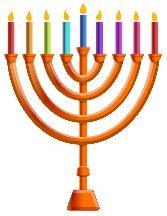

www.angelrealty.co.il


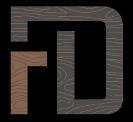
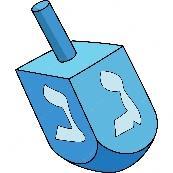


For Sale in The Village, Zayit, Eftat Stunning 210m 8 room cottage, 2 private parking spots, central A/C. 4,800,000 NIS
For Sale in Dagan, Efrat Stunning 8 room cottage, middle unit. 3 floors, 230m. 5,250,000 NIS For Sale in Gefen, Efrat Beautiful 5 room duplex garden 2,850,000 NIS For Sale in Dagan, Efrat 5 room garden apt. 120 meters 2,990,000 NIS

For Sale in Olive Project, Zayit, Efrat Gorgeous 4 room apt. 120m. 2,850,000 NIS
For sale in Zayit, Efrat 6 room duplex apt. 2,850,000 NIS Contact Gabi for more info 0524588716
Gabi 0524588716

Israel’s LEADING and MOST TRUSTED furniture repair company Glue with us once and y ou’ll stick with us forever FIRST TIME EVER CHANUKAH PROMOTION!! 10% off all repairs and purchases from December 11th until December 31st 2022 --------------------------------- RESTORE YOUR FURNITURE TO HEALTH --------------------------------Website: www.thefurnituredoctor.co.il Email: office@thefurnituredoctor.co.il Phone: 02 999 2418 WhatsApp: 058 787 3755 Open throughout Chanukah
SMILES
Noteworthy Names

A name, we know, signifies one’s essence, one’s core identity. Chazal teach, “shema garim,” a name causes or influ ences a person’s reality. As a result of the famous struggle between Yaakov Avinu and the archangel of Eisav, Yaakov’s name is changed to Yisrael. What is the signif icance of this new name? Yaakov Avinu tries to find out the angel’s name, but the angel responds, “Why do you ask for my name?” What is the meaning of this reply?
The Kli Yakar teaches that the name “Yis rael” is a composite of two words, “Yashar” and “Kel”. He explains the word “yashar” as meaning “to see,” as in, “ashurenu v’lo karov – I behold it but not soon”. (Bamidbar 24;17) The Jew’s essence is to be able to ‘see’ Hashem in every circumstance. The world referred to as “olam” from the root that
means “hidden.” It is a place of concealment, where Hashem’s presence is obscured. A Jew is challenged to pierce through the mask and see the Hand of Hashem orches trating everything. The archangel of Eisav represents the glitter and externalities of this world. Yisrael’s victory over Eisav is not physical. It is a bequest to his progeny the ability to live an elevated existence in a world that tries to snuff out spirituality.
Rav Biderman in Be’er Hachayim notes a fascinating observation. The Torah tells us that Yaakov was given the name Yisrael, “Ki sarita im Elokim ve’im anashim vatuchal –Because you have struggled with G-d and with man and have prevailed.” (Bereisheet 32;29) Yisrael is related to the word “sarita” meaning “to struggle”. Is it not fascinating that Yaakov is given a name that expresses struggle as opposed to something that expresses victory? Would it not have been more appropriate to take his name from the word “vatuchal – you have prevailed”? Yet we learn from here that the essence of
28 TORAH TIDBITS 1495 / VAYISHLACH 5783
REBBETZIN SHIRA
Faculty, OU Israel Center
Securities offered through Portfolio Resources Group. Inc., member of FINRA, SIPC, MSRB, SIFMA US BROKERAGE SERVICES IN ISRAEL Get the Best of Both Worlds Keep your money in the US and receive local expert investment advice 02-624-0995 054-599-9530 aaron@lighthousecapital.co.il www.aaronkatsman.com CALL
more about patient self-control than phys ical might. It is found in the Talmudic trac tate Kiddushin 40a, where the tale is told about a certain Rabbi Zadok, who resists the attempts of a particularly powerful noblewoman to lead him astray. He exerts moral strength, and to him the Talmud ap plies the following biblical verse: "Bless the Lord, O His angels, mighty creatures who do His bidding, ever obedient to His bid ding. Bless the Lord, all His hosts, His ser vants who do His will." (Psalms 103:20-21)
a Jew, a Yisrael, is to contend and grapple, not necessarily to win. Our mission involves struggle, the outcome is never in our hands. After 120 years we will not be asked what we accomplished, rather, what we sought to accomplish. A parent is not held responsi ble for what his child becomes, only for his tefilah and his sincere effort to give his child the best tools to succeed. Western culture is goal oriented, Yiddishkeit, ‘Yisrael’, is pro cess and struggle oriented.
OLD KATAMON CLOSE TO GERMAN COLONY - New 3 room apartment, elevator, balcony with view, master bedroom, quiet, bright, 3,600,000 NIS
OLD KATAMON - New small building, 3/4/5/6 rooms, good location, garden or balconies, luxury, quiet, storage, parking, rare!
Isaac's way recognizes the necessity for great patience and forbearance. If we adopt Isaac's way, we must be prepared for a lengthy process before our challeng es are resolved. In the words of Rabbi Abraham Isaac Kook, words which have been memorialized in a popular song, "An eternal people does not fear the long and arduous path."
May the Torah learned from this issue of TT be in loving memory and נ"על our dear parents whose yahrtzeits are in Kislev Doris Weinberger a"h
'ד -ה"ע המלש לאקזחי תב האל הרובד
BAKA - Nice 5 rooms, 120m, modern building, elevator, large sukkah balcony, 3 directions, quiet, storageroom, parking, 5,280,000 NIS
UNIQUE HOUSE IN OLD KATAMONGreat location, beautiful house on a plot of a dunam, huge garden, Arabic style, quiet, 2 parking spots, rare!
28, Kovshei Katamon Street, Jerusalem
Tel: 02.5633008 - www.ben-zimra.com

As the name Yisrael reflects the nature of the Jew, the angel’s response characterizes our nemesis, the Yetzer Hara. Rav Shmuelev itz explains that the angel did indeed answer Yaakov Avinu’s question. “Why do you ask my name?” It perfectly expresses the angel’s core identity. If we were to pause and ask his name, we would realize that it has no sub stance, it is just an illusion and the desires he is tempting us to gratify are momentary pleasures removing us from a world of sanctity. If we were to stop and focus on his ‘name’, his essence, we would realize the temptation no longer seems as inviting.

Max Weinberger z”l ולסכ ז"כ -ל"ז בד ןב ךלמילא
Greatly missed by their children, grandchildren and great grandchildren Rav Aryeh and Dvora Weinberger Bernie and Leah Weinberger Menachem and Hannah Katten
One small interchange holds the secret of the continuous battle between us and the forces of evil. When we focus on the essence of names, we unlock the secret to success and victory.
Patience is necessary for those who fol low Isaac's way. But a wise woman taught us that patience is but another name for hope. That woman was Jane Austen, who put these words into the mouth of one of the characters in her great novel, Sense and Sensibility: "Know your own happiness. You want nothing but patience—or give it a more fascinating name: call it hope."
OU ISRAEL CENTER 29 OU ISRAEL CENTER 15
SEALING SERVICES Beautiful, spacious 4 room luxury unit, 2.5 baths, 2 oor,
elevator,
Exclusive! SHELLY LANDAU PROPERTIES LTD & EVA AVIAD REALTY bayitsheli@gmail.com
052-385-9944 • 054-499-9043 Rehavia-Talbieh on quiet Radak
Shabbat
large succa terrace, storage + covered parking.
www.aviadrealty.com
ולסכ
SERVICES
SEALING
AND ROOFING
MISCHEL
Sent On A Mission
In the Autumn of 1971, the ongoing politi cal controversy over “Who Is A Jew?” which was to define Jewish identity in the State of Israel, was at a peak. At that moment, the Lubavitcher Rebbe sent a delegation of Rus sian Chabad Chasidim, former refusniks who had recently arrived in Eretz Yisrael, on a mission to meet with various commu nity leaders and share a message on behalf of the Rebbe. The topic was the importance of mesirus nefesh, self-sacrifice in the battle to ensure that Israel’s Law of Return would always clearly state that it applies only to one who was born to a Jewish mother or who had undergone a halachic conversion. As part of their tour, the men met with Reb Moshe Feinstein, zt’l, Rosh Yeshiva of Mesivta Tiferes Jerusalem, roundly recog nized as the Gadol haDor. Reb Moshe, who had once served as the Rav of Luban, Russia, and fled with his family, was deeply moved by the self-sacrifice and perseverance modeled by the Chasidim. He was astounded at their level of learning and their high spiritual attainments, and marveled at how they had developed into talmidei chachamim and even maintained their visibly Jewish and Chasidic appearance with long beards,
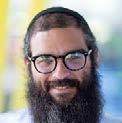
under such dangerous conditions.
With a tear of amazement in his eye, Reb Moshe asked them, “Please, how were you able to survive under the terror of Stalin’s religious oppression? How were you able to accomplish all of this?”
One of the group, R’ Yaakov Notik, answered with luminous temimus, sim plicity and sincerity: “What choice did we have? We are Jews, and we did what God expected of us.”
This week marks Yud Tes (the 19th) of Kislev, the celebration of the release of the Alter Rebbe, Reb Shneur Zalman of Liadi, from imprisonment in Czarist Russia in 1798. More than simply a commemora tion of the personal liberation of the Alter Rebbe, also known as the “Ba’al haTanya”, the author of Sefer haTanya, Yud Tes Kislev marks a turning point in Jewish history. The spontaneous liberation of the Rebbe ushered in a new era for the revelation and teaching of the “inner soul” of Torah.
Reb Shlomo Chayim Kesselman, zy’a, was the primary educator and beloved mashpia, spiritual guide, of Tomchei Temimim in Tel Aviv, Lod and Kfar Chabad in the first half of the Twentieth Century. An oveid, ‘servant of God’, and pedagogue who dedicated his life to building up people, he shaped the inner world of generations of talmidim, cultivating depth and spiri tual focus in countless future leaders of
30 TORAH TIDBITS 1495 / VAYISHLACH 5783
RABBI JUDAH
Mashpiah, OU-NCSY Executive Director, Camp HASC Author of Baderech: Along the Path of Teshuva (Mosaica 2021)
YUD TET KISLEV
Lubavitch. Reb Shlomo Chayim demanded the highest standards of contemplation and commitment from the students, encourag ing them to strive for true righteousness in their avodah. His required farbrengens, transformative soul-gatherings, lasted for hours, sometimes through the night with out a break.
Back in 1926, having been caught redhanded and found guilty by the Soviets of the ‘crime’ of teaching Torah, Reb Shlomo Chayim was sentenced to six months of forced physical labor, including cleaning the streets and removing garbage, a pun ishment meant to degrade and humiliate him. For the resolute Reb Shlomo Chayim, however, his Hisbonenus, ‘meditation on God’, and his devotion to his mission of disseminating Torah, were his only badges of honor, and these could never be taken away. In fact, taking pride in being punished for his mesiras nefesh, he would don his Shabbos clothes before going out to the street to do his job.
At a farbrengen held on Yud-Tes Kislev that same year, the Previous Lubavitcher Rebbe, the “Rayatz”, mentioned Reb Shlomo Chayim:
The time for mesirus nefesh, self-sac rifice, will soon be gone, because in the near future, teenagers will be able to study Torah overtly. Fellow Jews: seize the oppor tunity for self-sacrifice! Seize it, because there will soon come a time of complete religious freedom, and when that happens, you’ll search for some way of experiencing self-sacrifice, but you won’t find it. There will soon come a time when you will speak admiringly of a person who served time (in prison) because he was a malamed, or
because he maintains a cheder, or yeshiva, or a mikvah. You will envy such people, and will feel sore that you yourselves did not have the merit of doing so yourselves. When that time comes, the hem of Shlomo Chayim’s coat will be considered holy!
The Alter Rebbe explains, The force of the Divine light of the blessed En Sof which is clothed in the soul… is great and powerful…. enables one to withstand a test of self-sacrifice to the extent of even refusing to do some single act that is con trary to the faith in the One God, such as, for example, bowing to an idol, even without acknowledging it in his heart at all… This is called “fear that is contained in love”, the natural love of the Divine soul that is found in all Jews, the intrinsic desire and will of which is to be attached to its origin and source in the Light of the Blessed Ein Sof. (Tanya, Chapter 19)
Yud Tes Kislev, “the Rosh Hashanah of Chassidus”, is a uniquely auspicious day for re-committing ourselves to values that are worthy of self-sacrifice. תודיסחה יכרדבו תודיסחה דומילב הבוט הנשל !ומתחתו ובתכת
May we be written and inscribed for a good year in the study of the Soul of Torah, nd its ways of fearless righteous action; May we always live our Yiddishkeit — our shlichus and mission — with passionate ded ication and depth, amid revealed good!
OU ISRAEL CENTER 31
Mazal Tov to Rabbi Aaron & Miriam Adler and family on the birth of a granddaughter
SIMCHAT SHMUEL
BY RABBI SAM SHOR Program Director, OU Israel Center

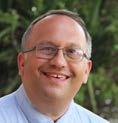
arshat Vayishlach finds Yaakov Avinu as he is about to re-encounter his twin brother Eisav, and he is quite worried about that meeting. Before he goes to sleep that evening, he utters a tefila, using language that should seem familiar to each of us.
Then Yaakov said, “G-d of my father Abra ham and G-d of my father Yitzchak, Hashem, who said to me, ‘Return to your native land and I will deal bountifully with you.’
Yaakov Avinu, at this moment of great per sonal crisis, employs very similar language as we, his descendants, do when we daven to this very day, invoking the merit of his father Avraham and grandfather Yitzchak before him (we of course add Yaakov’s name s well).
Subsequently the Torah tells us:
And Yaakov was left alone. And a man wrestled with him until the break of dawn.
The meforshim offer various interpreta tions of this incident, where Yaakov is left alone, and then engages in some sort of struggle with a mysterious individual. My distinguished teacher and colleague, Rabbi Ari Kahn, in his beautiful work Explorations offers a rather unique interpretation of our verse:
If Yaakov is truly alone, who can he be wrestling with? The most straightforward answer is that he was, in fact, alone; no one else was there to wrestle with him. Yaakov was wrestling with himself.
Rabbi Kahn’s insight, perhaps, can help us to uncover a fundamental message that is alluded to in these pesukim.
Seemingly, Yaakov has uttered his tefila, entering into a deep contemplative state and internal struggle. He emerges from this dream-like experience, and he has received a new name- Yisrael, he has been injured and impaired in his leg, and this experience has an impact for his descendants for all eternity..

Yaakov himself is physically changed, his identity is transformed, and there is an implication for all subsequent generations to refrain from eating from the gid hanasheh.
How might this entire episode come to
32 TORAH TIDBITS 1495 / VAYISHLACH 5783
P
’ה קָחְצִי י ִבָא י ֵקֹלאֵו ם ָהָרְבַא י ִבָא יֵקֹלֱא בֹקֲעַי רֶמאֹּיַו ְךָּֽמִע הָביִטיֵאְו ָךְּתְדַלֹומְלּו ָךְצְרַאְל בּו ׁש י ַלֵא ר ֵמֹאָה
רַחָּֽׁשַה תֹולֲע דַע ֹו ּמִע ׁשיִא ק ֵבָאֵּיַו ֹו ּדַבְל ב ֹקֲעַי רֵתָּוִּיַו
Religious Caregiver Car owner
Mazal Tov to Michaela & Alan Levine and families on the birth of 3 great-grandsons
teach us about the goals of tefila and its impact and implication in each of our lives? What is the experience of tefila really meant to be for each of us?
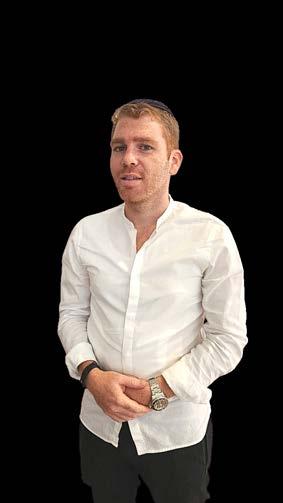











Rav Kook zt’l (as cited in the Sefer Mish nat HaRav,edited by Rav Moshe Zvi Nerya zt’l) explained the transformative capacity inherent within the experience of tefila.



The difference between one who davens and










Flying with Peace of Mind with PassportCard Travel Insurance No matter what Wonderful new Tama 38 project at the heart of Classic Arnona. 34 - 5 room brand new apartments and a Penthouse available. High quality of construction and specifications. Beautiful views and private parking spots. ready within 24 months, comfortable payments. PRE-SALE PRICES!!! JHOMES - 16 KING DAVID STREET, JERUSALEM 28 REVADIM STREET JONAS HALFON 054-700-9518 ד"סב


34 TORAH TIDBITS 1495 / VAYISHLACH 5783
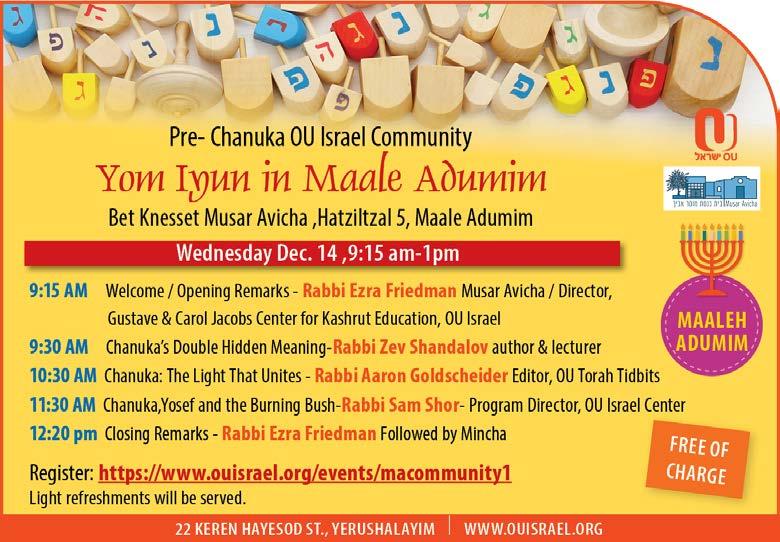
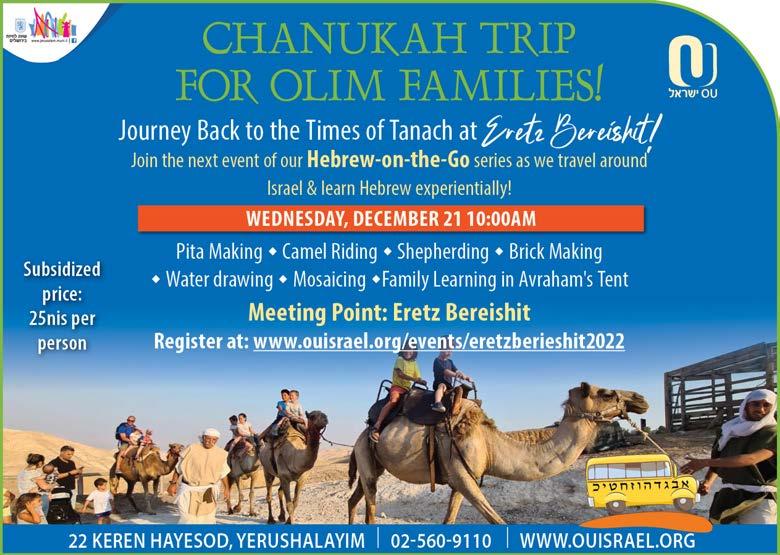
OU ISRAEL CENTER 35
SHIUR SPONSORS
Monday, December 5 - Rebbetzin Pearl Borow’s shiur was sponsored for a Refuah Shleima for Yaakov Naftali ben Fraida

Monday, December 5 - Rabbi Goldscheider’s shiur was sponsored תמשנ יוליעל Chana bat Guta Hirsch a”h on her yahrzeit - 6 Kislev
Thursday, December 8 - Rabbi Ari Kahn’s shiur is sponsored by Judit Blumenfrucht in loving memory of her mother, Chaya Rivka bat Sara a”h Monday, December 12 - Rabbi Goldscheider’s shiur is sponsored by Ruth & Stuart Pilichowski - Mazal Tov to Karen & Rabbi Aaron Goldscheider upon the birth of a grandson Rebbetzin Shira Smiles shiur is sponsored for the 2022 academic year by Dr. & Mrs. Menachem Marcus in memory of their parents Rose & Dr. Emanuel Marcus
and Rosi & Ernest Strauss
Rabbi Goldin’s shiur is sponsored for the 2022 academic year by Dr. & Mrs. Menachem Marcus in memory of beloved aunts Irma Haas a”h and Hilde Myer a”h
Rabbi Manning’s shiur has been sponsored for the 2022 academic year
Rabbi Kimche’s shiur has been sponsored for the 2022 academic year
Rabbi Taub’s weekly Thursday Parshat HaShavua Shiur is sponsored by The Jewish Legacy Foundation
Rabbi Breitowitz’s Sunday shiur for the 2022 academic year has been sponsored in Loving Memory of Rachel bat Yehuda Aryeh & Hensha a”h
36 TORAH TIDBITS 1495 / VAYISHLACH 5783
ל”ז סוקרמ השמ ןב יכדרמו ריאמ ףסוי תב
סוארטש דוד ןב לאינדו םהרבא תב דומיל
לזייר
ל”ז
ןמלק ןב גילזו ה”ע תידנב תב הנרב תמשנ יוליעל
ל”ז
ל”ז המלש ןב בוט םשו ה”ע םהרבא תב םירמ תמשנ יוליעל
PRI HADASH WOMEN'S WRITING WORKSHOP AT THE OU ISRAEL CENTER Monday mornings 10.30-12.30 For more details, call Ruth 02-628-7359 or Judy 054-569-0410 GET FIT WHILE YOU SIT: Exercise for ladies Join us on Sundays 12:45-1:30pm at the OU Israel Center Sura Faecher 0504153239 Knitting Club at the OU Israel Center every other Thursday 1:30-3:00pm Call 052-734-6354 for details


OU ISRAEL CENTER 37


38 TORAH TIDBITS 1495 / VAYISHLACH 5783
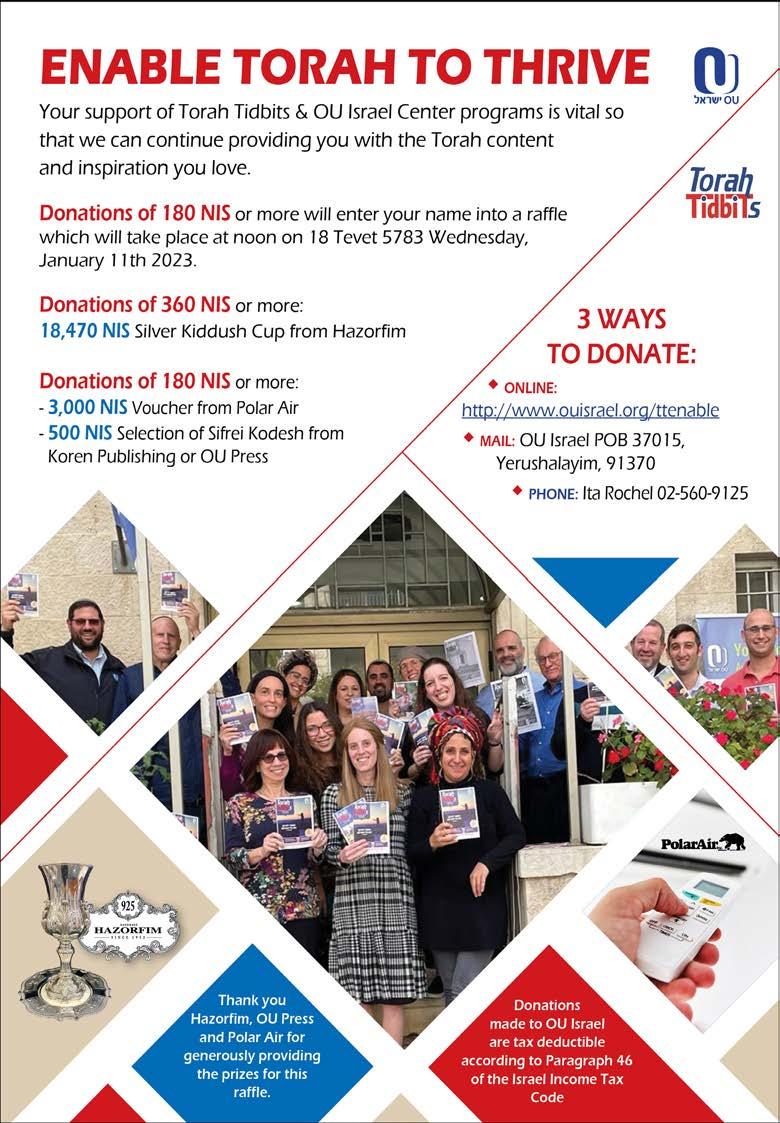
OU ISRAEL CENTER 39
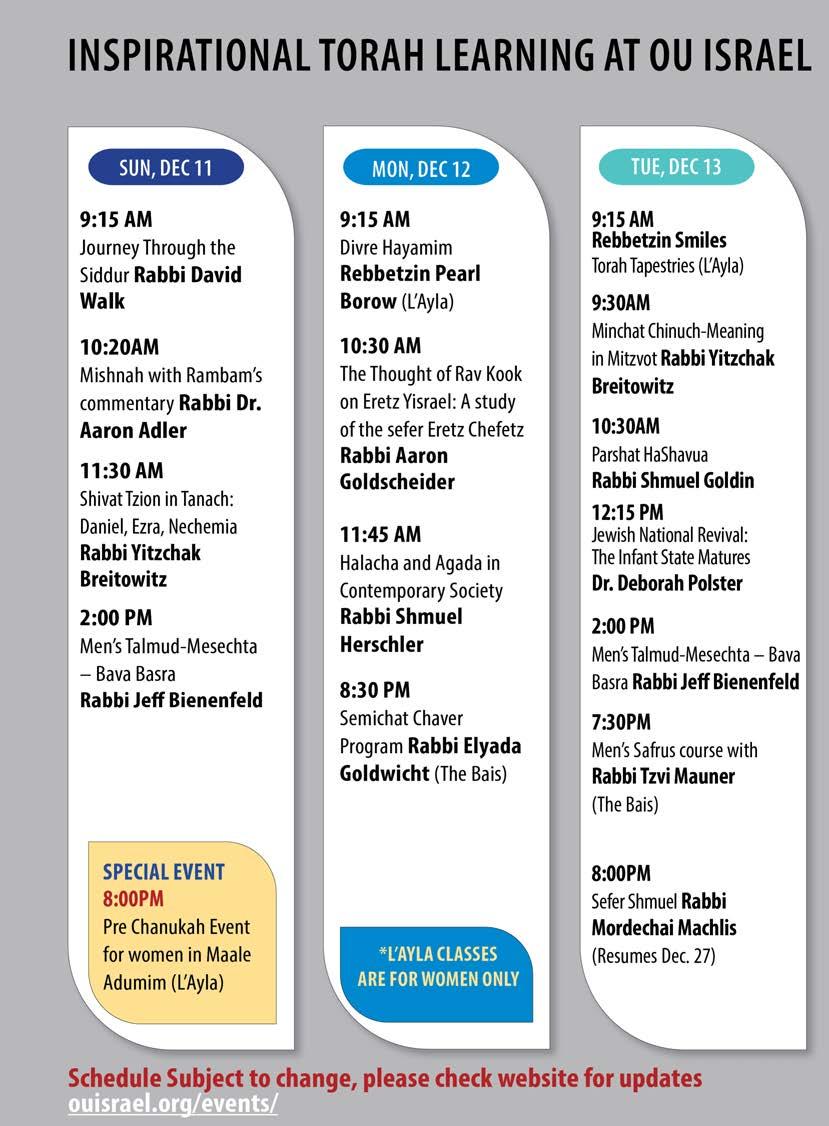
40 TORAH TIDBITS 1495 / VAYISHLACH 5783
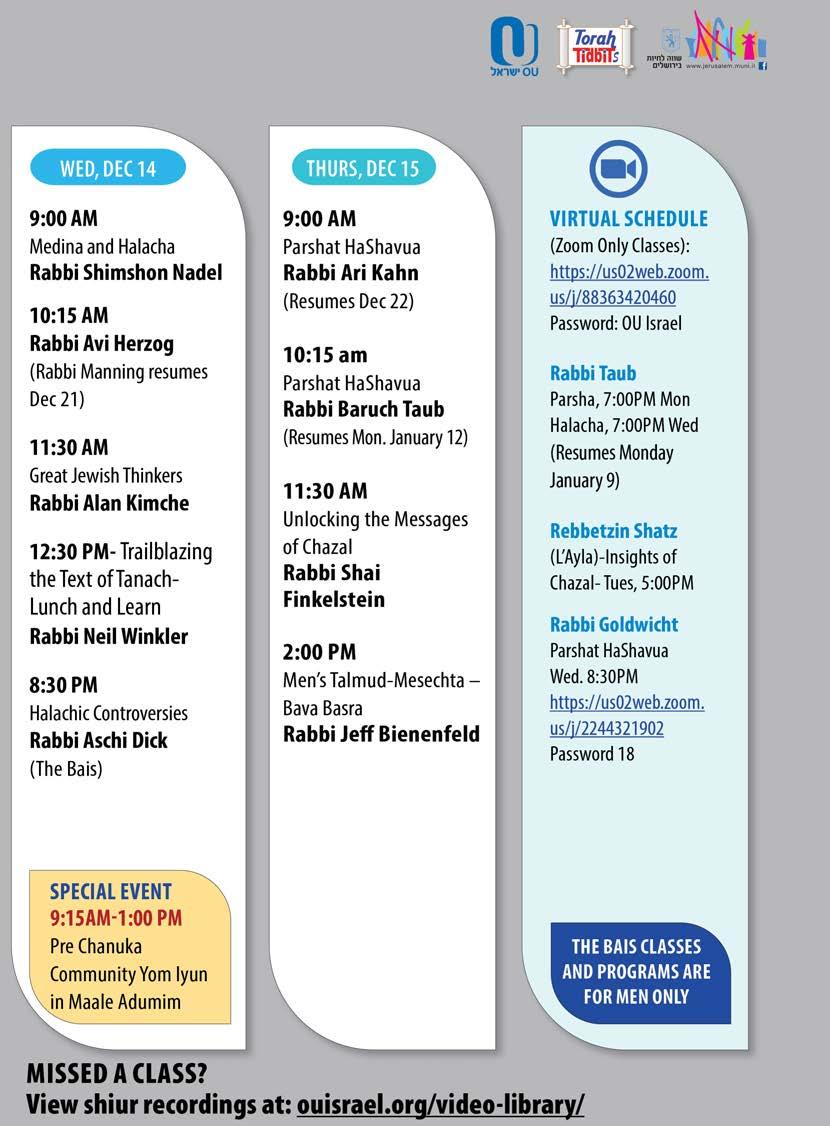
OU ISRAEL CENTER 41














42 TORAH TIDBITS 1495 / VAYISHLACH 5783 לארשי ץראל עסמה לארשי ץראל עסמה
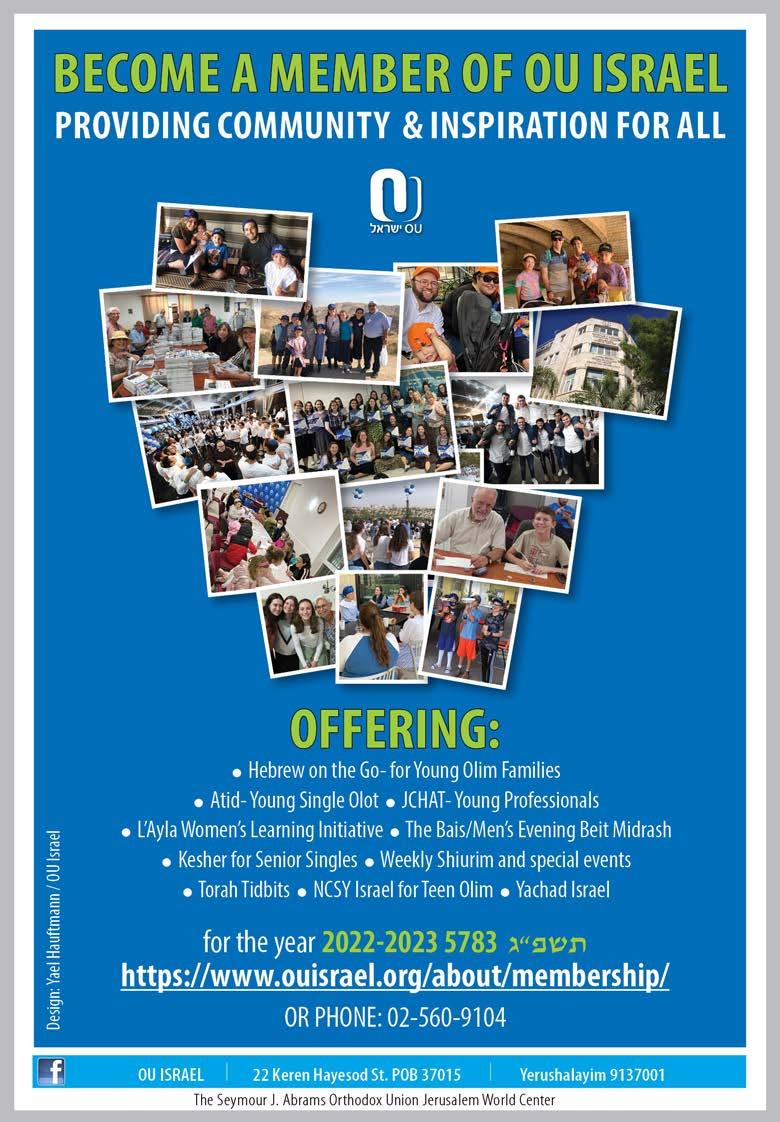
OU ISRAEL CENTER 43
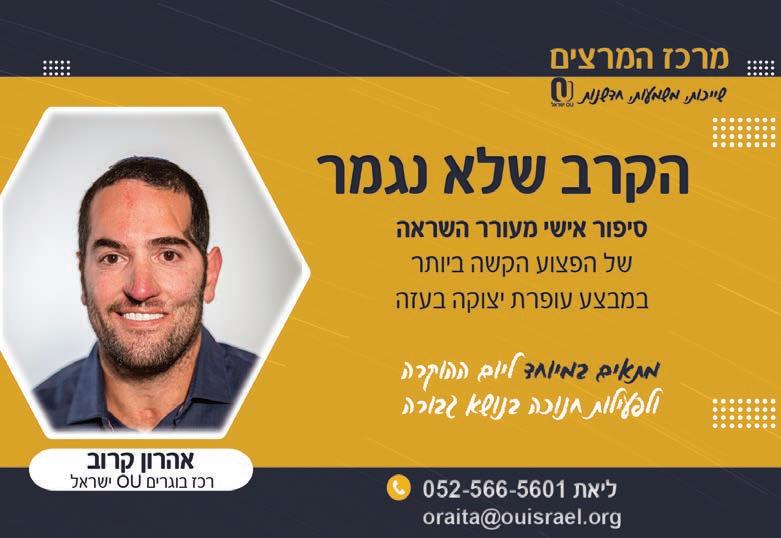
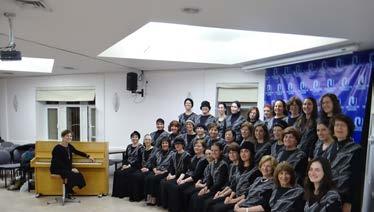

44 TORAH TIDBITS 1495 / VAYISHLACH 5783 DOROT - The OU Women's Intergenerational Choir Director Hadassah Jacob 052-384-7230 Monday Evenings 7:00 - 9:00pm URGENT TZEDAKAH APPEAL for very ill, lonely widow woman with no family. Cancer survivor/ serious heart condition. Desperately needs money for basic needs/ medical expenses/place to live. joanmarastern@gmail.com Phone 058-778-0691 Endorsed by: Rabbi Zev Leff/Rabbi Yaacov Hillel/ Rabbi Simcha Sheinberg/ Rebbetzin Dena Weinberg/Rabbi Yisrael Gans/Rabbi Dayan Dunner Donations can be sent to: Rebbetzin Tzipporah Gottlieb-Heller, Neve Yerushalayim Seminary, 1 Beit Yitshak Street, Har Nof, Jerusalem 94130 or to Matat Mordechai Charity, Tax deductible Bank Mizrachi Tefachot. Bank 20. Branch 520, account 128764. Widows account 3649 Thank you to all of our devoted friends and donors who contribute to the Fund and help over 200 poor and needy families to enjoy Shabbat and the Holidays. Best wishes to all for a healthy winter and a Happy Chanukah! Send your contributions to the Clara Hammer Chicken Fund P.O.B.18602 Jerusalem 91185 (02)5810256 Donate via PayPal at Chickenladyofjerusalem.com !אירב ףרוחו חמש הכונח
Building a Beit Midrash in memory of Ari Fuld ד"יה
Ari Fuld, our dear friend and resident of Efrat, was an honor to the Jewish people during his lifetime, as well as in his death. We have been working tirelessly to establish a Beit Midrash in his memory in his shul in Efrat, the Zayit Ra’anan Synagogue. The plans have already been approved and the outer structure of the building has already been built. All that is left for us to do is raise the last portion of funding.

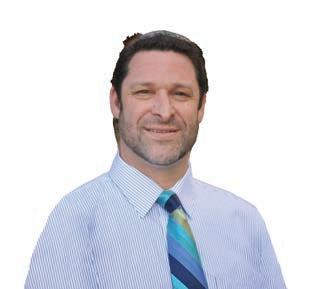

For this, we need your help!
The Beit Midrash that is being built will serve the many needs of our community, and it will be an active, vibrant place of Torah study, prayer and holiness.

Together we will continue Ari’s legacy which was built on an understanding and love for the Torah with full trust and belief in Hashem.
Join us and be a part of this incredible project!
Campaign dates: 14-15 of December | 20- 21 Kislev











Scan to Donate
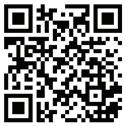
OU ISRAEL CENTER 45 ד״יהדלופ ירא לש ורכזל שרדמתיב


46 TORAH TIDBITS 1495 / VAYISHLACH 5783



OU ISRAEL CENTER 47 ...המלש האופר • Miriam Tovah Chaya bat Chanah Elisheva Rivka •Yosef Ezriel ben Chaya Michal הלחמ ןב ןתנוהי • רתסא ןב המלש • לזייר הניס ןב ץרה ילתפנ • הכרב הנח ןב השנמ םהרבא • • Esther Fruma bat Baila • Yisrael Leib ben Chana MAXI BoX 053-7272-815 ד״סב Storage Your place for extra space Flying Soon? Travel with Confidence 1UniTravel - Medical Insurance at great prices Choose from multiple options 1unitravel.brokersnexus.com 1UniSim - Sims for USA and Worldwide Starting at $40 sales@1unisim.com Call 077-400-3199 or USA 718-715-0001 GOOD DEAL!!!
–
2 rooms,
elevator, terrace, calm, store-room, parking 2000000 NIS -
052-8980111 VERY GOOD INVESTMENT!!
Bustan
beautiful boutique
Large 2 room apartment, ground floor (0 steps), elevator, balcony, parking 2450000 NIS
In New TALPIOT
Spacious
50m, recent, Shabbat
MENDEL
In
BakaIn a
building –
- MENDEL 052-8980111 TALPIOT HAYESHENA – In a new project, 4 rooms, 100m, elevator, balcony, occupancy in 2 years, from 3400000 NIS MICHAEL 052- 3202488 FOR RENT / for SALE!! In the heart of BAKA, in an Arab house and a pastoral street - Garden apartment 4.5 rooms, spacious, lots of storage space, partially furnished, garden, 60m) 5500000 / 8700 NISMICHAEL 052-3202488
GEULAS YISRAEL
BY RABBI MOSHE TARAGIN R am, Yeshivat Har Etzion
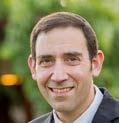
Redemptive Swagger
Yaakov had been repeatedly assured by Hashem of His divine protection and of a safe return to his Homeland. Yaakov’s leg acy as the “chosen” son had been confirmed as well as his selection as the successor to Yiztchak. His position in history having been guaranteed, Yaakov had every rea son to be confident, as he faced off against Esav’s army of four hundred mercenaries.
Yet he remains agitated. Facing this intim idating militia, Yaakov doesn’t rely upon divine promises or redemptive assurances. Desperately preparing for this confronta tion, he fervently prays, divides his camp in two, and assembles a package of appease ment to pacify his violent brother’s rage. Despite his confidence and Hashem’s guarantees, Yaakov takes nothing for granted.
Yaakov’s battle with Esav sets a model for Jewish history. His nighttime wrestling match with a supernatural foe, signaled that this meeting of brothers would extend well beyond that particular time and place. What happened on that original battlefield between Yaakov and Esav would carve out a template for the future. By adopting a cautious policy of pragmatism and paci fication, and “bending” to his brother’s authority, Ya’akov was educating us about
our own struggles with a hostile world. Confidence in our future can’t undermine cautious decision making. Reassurances of Jewish destiny should not replace respon sible behavior.
Studying Vayishlach En Route to Rome
As they traveled to ancient Rome to peti tion on behalf of our people, our Chazal routinely read Parashat Vayishlach. Our hobbled and defeated nation was in no position to lodge demands. In 70 AD Yerushalayim was trounced by the Romans, and sixty years later, the Bar Kochba rebel lion was brutally and bloodily crushed. Much antagonism existed between Rome and Judea and the mighty Roman empire had little interest in acceding to requests from a lame people, soon to become obsolete.
In this fragile state of vulnerability Chazal carefully adhered to Yaakov’s roadmap, hoping to stabilize our rickety situation. As their ships navigated to the western shores of Rome, Chazal looked to Yaakov’s encounter with Esav for guidance. Aware that they lived at a precarious moment of Jewish his tory, they proceeded with great caution.
Of course, Chazal were well versed in redemptive prophecies. They knew that despite their feeble state, ultimately, Yaa kov’s children would prevail over Esav. They just had no clue how long it would take and how exactly the road to redemp tion would unwind. Little did they know
48 TORAH TIDBITS 1495 / VAYISHLACH 5783




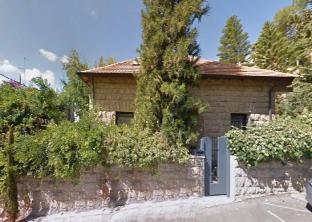

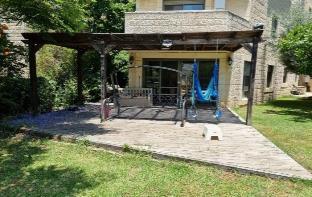
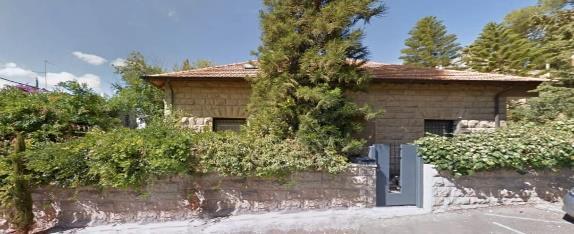

OU ISRAEL CENTER 49 NACHI REALTY 054-461-3943 New building under construction in a great location. 3 rooms only 2.47m shekel. 4 rooms available as well from 3.27m NIS 4 rooms on Chizkiyahu HaMelech in Katamon, 2nd floor, beautifully renovated, 2 full bathrooms. 3.49m NIS לייא תולבוה ד״סב www.premiummoving.co.il MovingPackingStorage 053-7272-815 20% OFF 8 DAY HANUKKAH SALE & grand opening Dorot Rishonim 3 | 02-563-7155 | Web: SherlockSHats.com KING GEORGE BEN YEHUDAH DOROT RISHONIM 3 Authentic Villa #052-6984466 8 R | 220 SQM | 4 B | 3 floors | 180 SQM garden building rights | 18,500,000 NIS In the heart of Old Katamon #052-2670008 5 R | 150 SQM | elevator | parking | balcony spacious & bright | 6,900,000 NIS Arnona #050-7225694 8 R | garden | balcony | renovated | accessible spacious living room | separate unit 10,900,000 NIS Gilinski Real Estate gilinski.co.il
it would be thousands of years before the sun would once again rise upon Yerusha layim. Little did they know that rivers of Jewish blood would flow through two mil lennia of hatred and ruthless persecution. They clung to Yaakov’s policy, and, ever since, Jews have waited confidently for redemption while not allowing redemp tive confidence to muddle responsible behavior.
Caution During Geulah
Surprisingly, Yaakov exhibited the same restraint even as his triumph began to unfold. Having defeated a celestial fighter who accosted him at night, Ya’akov is now renamed Yisrael, alluding to his own per sonal victory, as well as to the triumphant moments of Jewish history. The name Yisrael stems from his victory םיקלא םע תירש יכ לכותו םישנאו -he wrestled with angel and man and emerged victorious.
When Jews struggle, we clasp onto heels of a historical process which bests us and eludes us. During these phases of strenuous clutching and grasping we are named “Ya’akov”. When we succeed and defeat our enemies, we live through more tranquil periods of victorious “Yisrael”. ובוט המ לארשי ךיתונכשמ בקעי ךילהא during our periods of “Ya’akov” we live temporary and unsta ble tents or an להא. During triumphant periods of “Yisrael” we craft sturdy and permanent structures or a ןכשמ.
Now that he bears the name Yisrael, Ya’akov is assured of eventual victory over Esav. Yet, he still acts vigilantly, warily divid ing his camp and mollifying his brother.
Vaysihlach provides a directional course of action even for redemptive eras of “Yisrael”. Even as history turns, and the
redemptive era emerges, Vayishlach cau tions us not to act with over-optimism or with impudence, not to carelessly rely upon miracles, and not to throw our fate upon supernatural intervention.
This is a harder phase of history to navigate. Under the intoxicating spell of redemption, we sometimes become too giddy with anticipation, and we lose our balance.
Mordechai’s Decision
The Babylonian exile was drawing to a close, we had already returned to Yerusha layim and had begun construction of the second Beit Hamikdash. Unfortunately, the process stalled in the face of interna tional opposition to Jewish expansionism. Though the wheels of geulah were halted, it was clear that history was trending toward a Jewish return to Yerushalayim. Prophets had predicted a quick 70-year exile, and this period was about to expire. An air of confidence breezed through Jewish com munities around the world, as we were one step away from geulah.
At which point, dark clouds descended upon Shushan. A reckless king promoted a descendant of Esav, empowering a mega lomaniac murderer with unlimited power. Imposing his authority upon the citizens of Shushan, Haman demanded that every one bow to him as he walked past. Most Jews acceded. Bowing to a human, even a self-appointed demigod, was not hala chically forbidden and could certainly be authorized as pikuach nefesh to protect lives. Most Jews in Shushan followed the template of Vayishlach, bowing to Haman just as Yaakov had bowed to Esav centu ries earlier. This was a sensitive moment,
50 TORAH TIDBITS 1495 / VAYISHLACH 5783


OU ISRAEL CENTER 51
as we struggled with a homicidal tyrant, and it appeared wise to “bend” rather than stand tall and risk genocide. Even though redemption was around the corner, Vay ishlach seemed prudent.
One Jew disagreed, and his name was Mordechai. הוחתשי אלו ערכי אל יכדרמו . Refus ing to bow, Mordechai’s defiance infuriated Haman and unleashed a potential geno cidal nightmare. Thankfully Mordechai, Esther and the Jews of Shushan rallied, fasted three days, zealously prayed, and reversed this ghastly decree.
In celebration, we look back at Hash em’s intervention and glorify Mordechai and Esther’s heroism. Chazal were not so unequivocal in their endorsement of Mor dechai’s decision. Was he correct in his refusal to bow? Should he, like other Jews have followed the course of Vayishlach and displayed greater compliance? Chazal are ambiguous about this question, and it certainly seems as if Mordechai didn’t enjoy universal validation of his contemporaries. The Megillah concludes by describing Mordechai as someone who was roundly acknowledged by most of the Jews, suggesting that some still chafed at his “irresponsible” behavior, which had endangered an entire nation. All’s well that ends well, but Chazal didn’t explicitly ratify Mordechai’s veering from the careful and balanced course of Vayishlach.
Vayishlach presents a roadmap not just for dark days in Rome, in the aftermath of destruction, but also for sunny days in Per sia on the eve of redemption.
Redemptive Swagger
We now stand at the end of history facing the same challenge as Mordechai and the
Jews of Persia. Ironically, it was much eas ier for Rebbe Akiva and his colleagues, who simply cut and pasted from Vayishlach. In their gloomy reality, it would have been futile and foolish to exhibit confidence or swagger. They followed Vayishlach to a tee.
Everything has changed. We have wit nessed miracles and historical revival. With Hashem’s assistance we have defeated waves and waves of celestial opponents. The promises delivered to Yaakov are wafting through the Land of Israel, as Jews stream back from across the globe. Our world has turned radiant and redeemed.
Vayishlach is still with us. We know that it will end, but not when nor how. We can not fall into redemptive swagger, naively assuming that we can take any risk or proceed down any reckless path with divine assurance to back us up. We must maintain caution and act with historical responsibility.
Caution and confidence can exist side by side. Lack of confidence in Hashem’s renewed appearance in history is a defi ciency of emunah. We have waited for Him to re enter our world, and we cannot blind ourselves once He does. Seeing the reentry of the Shechinah should restore optimism and confidence.
Confidence though, cannot eliminate caution. Recklessness was never our tradi tion, and it cannot become ours now.
We are the first in thousands of years to face this delicate balancing act. Can we steer between caution and confidence? Can we live redeemed lives without abdicating the cautious path of our past?
Geulah brings privileges but also new challenges.
52 TORAH TIDBITS 1495 / VAYISHLACH 5783




OU ISRAEL CENTER 53 Ilana Nelson 054.5341403 www.integrityrealestate.co.il FOR RENT LOVELY, BRIGHT 3 RM APT #4 TCHERNICHOVSKY ST 85 M, WHEELCHAIR ACCESSIBLE FURNISHED WITH APPLIANCES 3RD FLOOR WITH ELEVATOR 6500 NIS
Real Life Rescues
Herzliya Man In Serious Condition After Shooting Incident, Saved by EMTs
On Monday evening, a man in Herzliya was badly injured in an act of violence that took place on Ben Gurion Boulevard, the man suffered 5 gunshot wounds to his torso and legs. United Hatzalah’s Dispatch and Command Center alerted nearby EMTs and other first responders to the incident.


Roni Sela, Head of United Hatzalah’s Mishor Hahof branch, was at home when he received the alert. Roni immediately rushed out, jumped into an organizational fly car and sped to the scene. As he arrived he found the injured man lying on the ground in a pool of blood. Roni approached him to take vital signs and saw that the man had begun to lose his normal color and was turning blue due to a lack of oxygenated blood being circulated through his system. He was suffering from hypoxia due to blood loss.
Roni started dressing the man’s wounds when another volunteer named Binyamin Scharf arrived at the scene on his electrical bike and joined Roni’s efforts to save the man’s life..

Roni and Binyamin together with other EMTs and Paramedics who arrived at the scene dressed the man's wounds, opened an IV line and provided him with assisted ventilation. A few minutes later an ambulance arrived and the pair of EMTs helped put the man on a backboard and load him into the ambulance in serious but now stable condition. The man was taken to a nearby hospital for further treatment and care.
Roni recounted after the incident; ‘’We arrive at many emergencies where there are numerous factors at play that can cause us to lose hope, but we always stay focused and go above and beyond to save the injured person's life. It’s not easy being an EMT, going out to the field and witnessing scenes of violence such as this is never easy. However, with the training that we receive and the right amount of self-care, our EMTs are successful in dealing with these types of scenarios and continue to perform in an exemplary manner. Our mission is to save as many lives as we can in as short a time as possible, and that is what we did today..’’
Binyamin Scharf
54 TORAH TIDBITS 1495 / VAYISHLACH 5783
1221




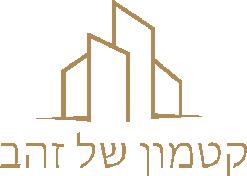
OU ISRAEL CENTER 55 072.394.2557 FOR MORE DETAILS CALL DAVID: COME AND JOIN OUR PRIME LOCATION BOUTIQUE PROJECT "KATAMON OF GOLD" 1-4 bedroom apartments built to a high standard, all with a Sukkah balcony and covered parking.
DIVREI MENACHEM
BY MENACHEM PERSOFF Special Projects Consultant, OU Israel Center menpmp@gmail.com
Oh – To Be Like an Angel!
Sometimes, when someone does us a huge favor or saves us from unpleasant cir cumstances, we call that person an angel. We might employ that appellation because the deed went beyond the call of duty or what we might have expected from a fellow human being.
So we might then ask why our Parsha begins by telling us – upfront, as it were –that Yaakov sent ahead to Eisav messengers (Mal’achim) that, according to Rashi, were angels ‘Mamash’ – the real thing!
The explanation for the “Kometz Hamincha” is that only angels, with their supernatural attributes, could fathom Esav’s true face when they encountered him. Thus, if Esav intended to wage war against Yaakov, they would confront him aggressively, coun tering that if Yaakov could overcome Lavan, he would have no trouble dealing with Esav.
On the other hand, if Esav’s intentions were peaceful, the angels would know how to address him with words of conciliation.
For the “Chomat Ha’esh,” Yaakov needed to send angels rather than men because even the most righteous of human messengers could yet be deceived and corrupted by Esav in one singular meeting. Only angels could withstand Esav’s shenanigans.
The Noam Elimelech offers an explanation from a more profound, inner perspective. When a tzaddik is involved in even the most banal activity, his thoughts and actions are sourced in a higher spiritual plane.
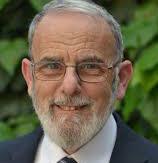
First, note that Yaakov tells the Mal’achim to address Esav as “Adoni” – ‘My lord.’ We might then construe, at first glance, that Yaakov is lowering himself in subservience to Esav. But no! The opposite is true, for the term “Adoni” is being addressed to Hashem.
Following the Midrash, Yaakov intention ally sent the angels Micha’el and Gavriel – who always spoke up for Yisrael – so that they would beseech Hashem to bless Yaakov and his fateful meeting with his long-venge ful brother, Esav.
Moreover, Yaakov’s seemingly straightfor ward message contained “hidden” missives for Esav. For instance, Yaakov proclaimed modestly: “Garti Im Lavan,” intending to say that he sojourned with Lavan as a Ger, a mere stranger – not as a prince or nobleman. But should Esav disdain his younger brother, Yaakov adds: “Vayehi Li Shor VeChamor” – ‘I acquired oxen and donkeys,’ the Shor traditionally signifying the powerful Mashiach ben Yoseph, and the Chamor, the donkey, the kingship of Mashiach ben David!
Oh! – If only our thoughts and intentions could rise to such heights!

56 TORAH TIDBITS 1495 / VAYISHLACH 5783
HAYESOD











































OU ISRAEL CENTER 57 CHANUKAH CAMPAIGN The Goal: NIS 50,000 Help Light up Chanukah for the Needy! “I was on drugs and depressed, and Yesh Ezra’s care saved my life.” – David Garbion. You can save lives too! • Checks: Make out to “Yesh Ezra” Send to: Yesh Ezra, POB 36156, Romema, Jerusalem • Bank Transfer: Bank Mercantile (17), Branch 642, A/C 79747843, Yesh Ezra • Credit card by phone: Sara at 077-820-0196 (Sun-Thu. 10:00am-3:00pm) • Website: www.yeshezra.org Click on “Donate Now” Inquiries: Menachem Persoff 050-570-1067 menpmp@gmail.com prosperity-realestate.com Keren Hayesod Jerusalem Ronit Dowek www.prosperity-realestate.com | info@prosperity-realestate.com KEREN HAYESOD JERUSALEM Bright 105 sqm apartment with excellent potential. Located in Keren Hayesod street (central). Walking distance from Jerusalem luxury hotels (King David, Mamila, Inbal etc.), the Kotel and the Great Synagogue. Offered at: 3,500,000 NIS FEATURES: 3 Bedrooms 1.5 Bathrooms Laundry room Elevator Church land - Lease till 2051 Ronit Dowek www.prosperity-realestate.com | info@prosperity-realestate.com KEREN HAYESOD JERUSALEM Bright 105 sqm apartment with excellent potential. Located in Keren Hayesod treets (central). Walking tancedis from Jerusalem luxury hotels (King David, Mamila, Inbal etc.), the Kotel and the Great Synagogue. Offered at: 3,500,000 NIS FEATURES: 3 Bedrooms 1.5 Bathrooms Laundry room Elevator Church land - Lease till 2051 Ronit Dowek www.prosperity-realestate.com | info@prosperity-realestate.com
JERUSALEM Bright 105 sqm apartment with excellent potential. Located in Keren Hayesod street (central). Walking distance from Jerusalem luxury hotels (King David, Mamila, Inbal etc.), the Kotel and the Great Synagogue. Offered at: 3,500,000 NIS FEATURES: 3 Bedrooms 1.5 Bathrooms Laundry room Elevator Church land - Lease till 2051
KEREN
A Genuine Oral Torah





















“The Oral Torah is nourished intimately from the heavens and becomes manifest from the earth.
And it is necessary that the Land of Israel be developed, with all of Israel dwelling upon it, arranged in all its order, complete with a Temple and royal monarchy, with priesthood and prophecy, with judges and enforces, and all of their procedures. Only then will the Oral Law thrive in all her glory, budding, blooming, and connecting to the written Torah with her full stature.” (Eretz Chefetz 2:1)





The Oral Torah is extremely delicate. On the one hand it is the explanation and eluci dation of the written Torah which constitutes the divine will - “the Oral Torah is nourished from the Heavens.” Additionally, however, it is assigned to man to deduce and extrapolate
the Torah’s meaning based on the reality and circumstances of the day - “and becomes manifest from the earth.”
Rav Kook argues that there is a remarkable relationship between the Torah and Eretz Yisrael.

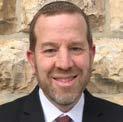
Rav Kook once wittingly remarked that the Hebrew word Mishkan is an acronym: Mel ech (Kingship), Shoftim (Judges), Kohanim (Priests), and Neviim (Prophets). When all the national institutions of the Jewish peo ple function holistically, the Oral Torah flourishes and generates the most authen tic version of the will of God. An active priesthood, prophecy and judges are all prerequisites to the Oral Torah’s wholeness.



Rav Kook argues that in truth the long exile has caused harm to the true appreciation of the Written Torah and to the pureness and clarity of the Oral Law: “In exile the twins were separated. The Written Torah ascended to its holy heights while the Oral Torah descended to the depths.” (Eretz Chefetz 2:1).

58 TORAH TIDBITS 1495 / VAYISHLACH 5783
RABBI AARON
Editor, Torah Tidbits
GOLDSCHEIDER
OTHER OPTIONS AVAILABLE | RAMAT BEIT SHEMESH | JERUSALEM | ASHDOD | ASHKELON | TZFAT | RAANANA | TEL AVIV NEVE SHAMIR NEW PROJECTS HIGH DEMAND 3,4,5 ROOMS GARDENS AND PENTHOUSES VARIOUSE OPTIONS FROM 1,950,000 NIS For 3 ROOMS www.israel-properties.com| Tel/WhatsApp IL +972 50 446 9515 | Office +972 2 568 6578 | toviyah@israel-properties.com GUIDING YOU EVERY STEP OF THE WAY HELPING YOU SECURE YOUR FUTURE IN ISRAEL WITH PROPERTY OWNERSHIP AND INVESTMENT NETANYA -PRE SALE NETANYA STUNNNING 4 ,5 ROOMS CLOSE TO IR YAMIM ALL WITH SUKKAH BALCONIES FROM 2.3 MILLION NIS HADERA PRE SALE 4 ROOMS 98 M2 WITH 14 M2 BALCONIES NIS LIMITED OFFER NO MADAD 5 MINUTE DRIVE TO BEACH FROM 1,790,000 NIS NEVE SHAMIR NEW PROJECT HIGH DEMAND CLOSE TO ALEPH AND MISHKAFAYIM 3,4,5 ROOMS HIGH LEVEL FINISHES HURRY CONTACT US TODAY FROM 2,180,000 NIS R’ANANA PRE SALE NEW HIGH LEVEL PROJECT SPACIOUSE UNITS CLOSE TO ALL AMENITIES NEIGHBERHOOD VARIOUSE OPTIONS CONTACT US TODAY TIBERIAS - PRE SALE LAKE VIEWS OPTION TO HAVE PRIVATE POOL 3 ROOMS 4 ROOMS GARDENS AND PENTHOUSES FROM 1,800,000 NIS Toviyah +972 50 446 9515, Daniel +972 53 444 0928 , Lara +972 58 661 1968, Yehudah +972 52 564 0130, Debbie +972 58 322 9858
The Written Torah, which “ascended to its holy heights”has largely been ignored in exile. Perhaps, this is because much of the written Torah deals with the nation as whole and the Land, and it therefore took a backseat to the interests and anxieties of a people on the run. The lack of serious study of Prophets and Writings over the past cen turies in particular, is striking. The re-emergence and creative study in this area over the past fifty years in the Land of Israel is powerful.
The Oral Law has also been adversely affected. Of the six orders of the Mishna, half of them - Zeraim, Taharot, Kodshim - all deal with laws of the Land and the holiness of sac rifices and the Temple. Thus, a substantial portion of the Oral Law received less atten tion and study.

In this context, it is worth noting the personal relationship that developed between the young Rav Kook and the renowned Chafetz Chaim. The Chafetz Chaim firmly believed that the time of redemption was fast approaching. He discussed with Rav Kook the pressing need, especially for the kohanim, to become proficient in the area of law that relates to the worship in the Beit Hamikdash. These two eminent figures shared the honor of being Kohanim. The Chafetz Chaim per suaded Rav Kook to study these areas of law
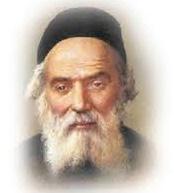
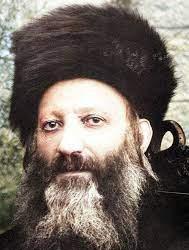
with the eye towards its practical employment. (Bein Shnei Kohanim Gedolim, p.22).
In a similar vein, the Chafetz Chaim wrote a booklet “Kuntres Tzipitah LeYeshua” which is a trea tise on hope and expectation; hope more than ever before for our Geulah, and an expectation that it is more imminent now than ever before in our history. The Chafetz Chaim writes that if our desire for Geulah is truly strong, then it must be accompanied by a demonstrable expression of that yearning and the development of expertise in the ser vice of the Beit Hamikdash. (Kuntres Tzipitah LeYeshua, English translation entitled Mazel Elul, 2009, Introduction)1
1
A final note regarding the Chofetz Chaim’s yearning for the Land. Printed in a collection of divrei Torah from Chafetz Chaim on the Torah is a farewell letter he wrote to his community as he had made his final preparation to journey to Israel. On Rosh Chodesh Elul, 5685 (1925) he wrote: “To my brothers, Bnei Yisrael…Now, as I plan to go up to the Holy Land, with His help to take pleasure in her stones and cherish her dust (Tehillim 102:15), I want to say farewell to my brothers and and my people who reside in these lands, and take leave of you with words of blessing.” (‘Chafetz Chaim On The Torah,’ Vol. 2, p. 423)
A sudden illness of the Chafetz Chaim’s rebbetzin just a few days before their planned departure delayed the trip. In the end, the Chafetz Chaim was unable to make the journey. (Ibid.)
OU ISRAEL CENTER 59
PARENTING COLUMN


Staying Out Late
Dr. Ethan Eisen, PhD

The story in this week’s parasha of Yaakov being accosted while alone at night provides a nice opportunity to think about a topic that many olim par ents find challenging with kids of all ages: curfews. Should my children have a cur few? If so, what should it be? How do I talk to them about it if they disagree with the rule?

An experience of mine from a couple summers ago highlighted a major cultural difference between Israel and the United States, and helped me gain perspective on why the topic of curfews is so challenging for olim parents. A cousin of ours from the USA was in Israel for a summer camp, and he joined our family for his off-Shabbos. As the summer Friday night meal came to its end after 10 pm, our elementary school-age daughters turned to my wife and me and asked “What time do we have to be home?” Our cousin looked on with some combina tion of shock and puzzlement. “Wait, they’re going out tonight?!” In his community in the USA, no one went out late on Friday nights; in our neighborhood, the streets are buzzing every week.
Friday night socializing, by and large, is unsupervised, which understandably makes many parents uncomfortable. Consider how you would complete this sen tence: “Nothing good ever happens after _____ p.m. (or a.m.).” Parents typically do not want their children out after that time. Aside from the safety concerns for their children, parents also may not be able to fall asleep until their children are home, which is a substantial inconvenience for parents who want to get a good night’s sleep.
On the other side of the argument, many kids feel that these hours are the week’s prime social opportunity to spend time with their friends, particularly because motzei Shabbos is a school night. Also, par ents may feel that encouraging their kids to have unsupervised time with their friends fosters independence, as well as positive social connections.
From my perspective, the question of curfews is really a question of how to bal ance these competing interests in a way that

60 TORAH TIDBITS 1495 / VAYISHLACH 5783
OU ISRAEL
We buy your Gold & Silver Personal home service - 30 years experience We also buy silverware, gold & silver coins! Please send me a picture to Whatsapp for free appraisals I pay cash! I will meet you where you want! Customer service! 972-54-219-2428 mail: absaffran@gmail.com Follow Us On Facebook
works for your family. And as with most other aspects of life that require finding a balance, this process typically involves a combination of open communication and boundary setting. The issue of curfews will not likely be solved in a single conversation, but below are a few suggestions for what might be included in an effective discussion.
Clearly articulate your concerns. As a parent, it is your role to be thinking about your child’s safety, even if she isn’t. You can also be honest with her if there are other reasons you are uncomfortable with her being out so late, like your ability to sleep peacefully.
Listen to and validate your child’s per spective. Try to be open to his point of view without immediately knocking it down. Feeling compelled to return home before his friends generates real distress, as he may anticipate feeling left out from his social group. The better understanding that you have of his perspective, the more you will be able to figure out how to achieve the best balance.
Discuss good safety practices. You can ask her who she will be with and where she plans to go, and you can be alert to parts of her plan that seem less safe. Part of this conversation can include general safety habits, like not walking by herself; being in public and well-lit areas when walking around; knowing where other families’ homes are in case she needs an adult; making good choices about her own safety; and other important discussions not immediately con nected to the curfew issue.
Work out an agreed upon curfew. Your child should walk away knowing exactly what time he needs to be back in the door, whether he should let you know that he’s
home if you’re sleeping, and what, if any, are consequences for missing curfew.
Olim parents are confronted by many cul tural adjustments, which can be sources of tension between them and their children. But these areas of potential conflict can also provide opportunity for conversation and understanding, which ultimately can foster a stronger relationship between you and your child.
Dr. Ethan Eisen, PhD is a Licensed Clinical Psychologist (Israel and U.S.) offering Evi dence-Based Solutions for Individuals and Couples Feel free to send in any parenting questions you may have to parenting@ouisrael.org (Details will be changed to preserve anonymity).
Orit Madar,Adv
Yariv Madar, Adv. Bodily Injuries, Medical Malpractice Civil Litigation
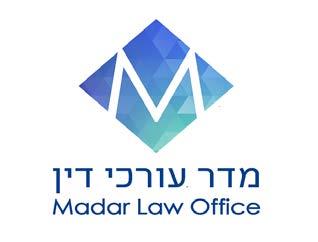
10 Hillel St., Jerusalem | 36 Dam hamkabim st., Modiin 02-6255592, 050-3202909
Madar@netvision.net.il
OU ISRAEL CENTER 61
ENGLISH
SPEAKING LAW FIRM
Family Law and Mediation Divorce, Child support, Custody Inheritance & Wills
TOWARDS MEANINGFUL
TEFILLA
Birchat Haaretz
BY REBBETZIN ZEMIRA OZAROWSKI Director of OU Israel L’Ayla Women’s Initiative

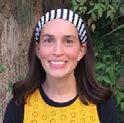
Last week, my seventeen year old daughter returned home from a week-long םישרוש עסמ (“roots journey”) in which she, together with her classmates, delved into their roots. This wasn’t a trip to Poland to discover their heri tage but rather a trip around Israel in which they focused on building their own identities. In order to understand who they themselves are, they needed to explore their relationship with Eretz Yisrael, Am Yisrael, and Torat Yisrael (through activities as varied as farm ing the land, interviewing random people on the streets of Tel Aviv, and learning Torah with Rabbanim of Mercaz HaRav). All of these relationships are intrinsically con nected. As I began delving into the second bracha of ןוזמה תכרב for this week’s article, I noticed again this idea of the inter-connec tion between these three relationships and it reminded me of my daughter’s experiences.
The second bracha of Birchat Hamazon is known as ץראה תכרב and it consists of the two paragraphs of ךל הדונ and לכה לעו.
In this paragraph, we now move beyond thanking Hashem just for our food, to thanking Him for the source of the food –the Land. This makes a lot of sense - if we want to thank Hashem in a comprehensive way, it’s only logical to continue our train of thanksgiving with the natural source of our sustenance. One would expect then that the paragraphs of ךל הדונ and לכה לעו would be full of praise for Eretz Yisrael, describing its natural resources, its fertile ground, its beautiful scenery, and its bountiful crops in detail. And yet…the only words describing Eretz Yisrael in these paragraphs is when we thank Hashem for giving our forefathers “הבחרו הבוט הדמח ץרא”, a desired Land of good and expanse. These are very nice accolades, but what are the rest of the two paragraphs devoted to? How can we call this ץראה תכרב when we then go on to seeming tangents about Hashem taking us out of Mitzrayim, Brit Milah, and receiving the Torah?
Our Rabbis tells us that this bracha was composed by Yehoshua as he led the Jewish people into Eretz Yisrael. What was on his mind when he entered into the Land? I am sure he did notice its beauty and bounty, and yet that was not his focus. Instead, he was overwhelmed by the thought that Bnei Yisrael had finally reached their ultimate destination and purpose. ־ֹלֱא ’ה ּונָתאֵצֹוהֶׁש לעְו םיִדָבֲע תיֵּבִמ ּונָתיִדְפּו םִיַרְצִמ ץֶרֶאֵמ ּוניק The entire story of the slavery in Egypt, the miraculous redemption, and the years of wandering in
62 TORAH TIDBITS 1495 / VAYISHLACH 5783
ץֶרֶא ּוניֵתֹובֲאַל ָּתְלַחְנִהֶׁש לַע ּוניקֹלֱא ’,ה ָךְּל הֶדֹונ םִיַרְצִמ ץֶרֶאֵמ ּוניקֹלֱא ’ה ּונָתאֵצֹוהֶׁש לַעְו הָבָחְרּו הָבֹוט לַעְו ּונֵרָׂשְבִּב ָּתְמַתָחֶׁש ָךְתיִרְּב לַעְו םיִדָבֲע תיֵּבִמ ּונָתיִדְפּו דֶסֶחָו ןֵח םיִּיַח לַעְו ּונָּתְעַדֹוהֶׁש ָךיֶּקֻח לַעְו ּונָּתְדַּמִּלֶׁש ָךְתָרֹוּת ,דיִמָּת ּונָתֹוא סֵנְרַפְמּו ןָז הָּתַאָׁש ןֹוזָמ תַליִכֲא לַעְו ,ּונָּתְנַנֹוחֶׁש הָעָׁש לָכְבּו תֵע לָכְבּו םֹוי לָכְּב
הָּדְמֶח

OU ISRAEL CENTER 63
the desert, had come to a close. The goal of all of these years was to get this moment. The Jewish people had gone through the fiery furnace of slavery, the clear witness ing of G-d’s Hand, and the “Midbar school” where they learned about dependence of Hashem, all in order for them to be ready for this stage, to form a nation who would then be worthy to inhabit the Land of Israel, the Land of the destiny of the Jewish people. These must have been the over whelming and incredible thoughts that were pushing forward in Yehoshua and his people’s heads as they “stepped off the plane” into Israel.


But their thoughts (and the bracha) don’t end there. Yehoshua also takes note of the fact that living in Eretz Yisrael is conditional. Just because Bnei Yisrael finally arrived in Israel, it doesn’t mean that they will also be able to stay or that the Land will continue to yield its fruits. These conditions are ּונֵרָׂשְבִּב ָּתְמַתָחֶׁש ָךְתיִרְּב לַעְו - the Brit Milah – becoming part of the Jewish nation and ּונָּתְעַדֹוהֶׁש
לַעְו - living by the words of the Torah. Only when we have a combination of all three – living in Eretz Yisrael, forming a Jewish nation, and following the Torah, can we really fill our role as the chosen people.

bracha, לכה לעו, have recently become a new Israeli hit (if you are not familiar with the song, search “לכה לעו” on Youtube). This new song takes these words that roll off of our tongues so quickly that they no longer have any meaning, and infuses them with new energy and significance. This paragraph is a sudden emotional outpouring of thanksgiv ing once we have finished listing all the good that Hashem has granted us – physically, spiritually, nationally, and individually.
We conclude the bracha by stating that this feeling of overflowing gratitude is a fulfillment of the pasuk “תכרבו תעבשו תלכאו” – “you will eat, be satisfied, and bless”. Rabbi Eliyahu Munk in his book תוליפתה םלוע points out that though we usually read this pasuk as a command and as the source for the mitzvah of bentching, here we read it as a promise. Hashem promises us that things will be good for us in Eretz Yisrael, we will have plenty to eat, we will be satisfied with what we have, and we will be so thankful that we will spontaneously be full of thanks to Hashem.
Let us try to take the extra minute to read the words slowly or out loud, or to even sing them with a new tune, so that we can tap into this abundant feeling of gratitude for what we have been given.
The words of the second paragraph of this
64 TORAH TIDBITS 1495 / VAYISHLACH 5783
ָךיֶּקֻח לַעְו
םיִכְרָבְמּו ְךָל םיִדֹומ ּונְחַנֲא ּוניקֹלֱא ’ה לֹּכַה לַעְו ָּתְלַכָאְו :בּותָּכַּכ ,דֶעָו םָלֹועְל דיִמָּת יַח לָּכ יִפְּב ָךְמִׁש ְךַרָּבְתִי ןַתָנ רֶּׁשֲא הָבֹוּטַה ץֶרָאָה לַע ָךיקֹלֱא ’ה תֶא ָּתְכַרֵבּו ,ָּתְעַבָׂשְו .ןֹוזָּמַה לַעְו ץֶרָאָה לַע ’ה הָּתַא ְךּורָּב .ְךָל
ּונָּתְדַּמִּלֶׁש ָךְתָרֹוּת
,ְךָתֹוא
A small Sefer Torah with its own Aron Kodesh is available to shiva houses or for any other necessary occasion on a temporary free-loan basis. If needed call Uri
053-‐427-‐6363 CINEMA
CITY
MALL,
JERUSALEM ArthurMSamuels@gmail.com PODIATRIST Over
30
years
experience Arthur
Samuels,
DPM Licensed in Israel & America CINEMA CITY MALL, JERUSALEM
Hirsch 0545513173




















OU ISRAEL CENTER 65 MASSAGE THERAPIST & FITNESS TRAINER 052.673.3704 I www.andyhealth.com | jerusalemmyhome@hotmail.com TUVIA ANDY HAAS BALANCE and FALL-PREVENTION SPECIALIST for OLDER ADULTS Maintain Healthy Bones and Muscles Decrease Stiffness and Joint Pain Increase Strength! Stay Independent! In a good area in the Moshava - 2-story garden apartment, 200m + 190m garden, in Tabu, has great potential, parking, storage, for renovation. Asking 8.2 million NIS In a good area in the Moshava2 apartments (can be connected), 1st floor, 170m, renovated, Sukkah porch, parking Palmach - 4 rooms, garden apt. about 100m asking 4.95million NIS Smadar 050-3114040 // 02-642-4329 smadi_bida@walla.co.il “TzviAir is a pleasure to work with and did an amazing job!” – Jamie Geller, Celebrity Chef AIR CONDITIONING SALES & SERVICE 02-628-8282 | tzviair.com Gemach for Chatan and Kalla: Meals for wedding and Sheva Brachot at cost Eida Hachareidis Hechsher Tel:052-633-1744 gadgadood@gmail.com donated by Marion & Michael Silman Ita Rochel 02-560-9125 www.ashleywilde.co.il • Curtains & draperies • Designer curtains • Venetian & Woven wood blinds • Blackout, Vertical, Roller, Roman & Pleated shades
FROM THE VIRTUAL DESK OF THE OU VEBBE REBBE
 RAV DANIEL MANN
RAV DANIEL MANN

Making Sure Your Check Is Cashed
Question: I owed someone (=Reuven) 2,000 NIS, and he asked to give him an “open check” (i.e., payee left open), which he would give to someone else (=Shimon). I do not know whom or why. A couple of months have gone by, and the check has not been cashed. I believe that if Reuven, with whom I have a great relationship, had lost it, he would have told me. Assuming he already got his value from it, must I find out why Shimon has not cashed it, remind him, and/or replace the check, or, after paying my debt to Reuven’s satisfaction, Shimon is not my concern?
Answer: There are three approaches to how to view the halachic significance of giving a check. 1) Since it is generally forbidden to cancel a check, a check is like money (Igrot Moshe, Choshen Mishpat II:15). 2) A
check is a self-obligation of the check writer (drawer), to the payee or to anyone if it is an open check (Minchat Yitzchak V:119); 3) The check is no more than an order that the drawer gives to a financial institution to give money to the payee (Shevet Halevi VII:222). The starkest difference between #2 and #3 is whether, if the drawer cancels the check, the obligation to pay still exists. (From a techni cal perspective, banks usually allow one to cancel the check, but the legal system needs to be convinced he was justified to do so.) #3 is definitely the direct meaning of the check. As they are used in today’s society, the more accepted approach is #2, that it is not consid ered money, but that the drawer obligates himself to pay whoever uses it legally (see Pitchei Choshen, Halva’ah 10:(21); Shirat Devora II, CM 23).
(Almost) all agree that if one gave a check to one whom he owed and it got destroyed, he has to replace it. Even if one conceptually views a check like money, it is significantly different from real money in this context. If Levi pays Yehuda with cash, the payment is immediately usable, whereas a check needs

66 TORAH TIDBITS 1495 / VAYISHLACH 5783
יצח ' מע עבר ' מע פירטס יצח ' מע עבר ' מע פירטס A unique hospitality experience in the religious community of Har Shmuel between the vineyards of the Judean mountains in a pastoral biblical landscape. A short distance from Jerusalem. Upgraded and fully equipped villa: ● 8 spacious bedrooms (2 bedrooms can be added for extended family) ● Suitable for hosting families and groups of up to 26 people. ● Air conditioning, heating, spacious kitchen, garden, swimming pool, barbecue area, sauna and more ... ● All these create a warm atmosphere all while being luxurious and elegant. A selection of synagogues nearby. in the mountains of Jerusalem Upscale holiday villa A vacation in Israel in a dreamlike atmosphere Avraham- 050-2604621 Book your vacation now! Enter and view the spectacular panoramic photo: https://www.datipage.co.il/biz/18114
The Orthodox Union - via its website - fields questions of all types in areas of kashrut, Jewish law and values. Some of them are answered by Eretz Hemdah, the Institute for Advanced Jewish Studies, Jerusalem, headed by Rav Yosef Carmel and Rav Moshe Ehrenreich, founded by HaRav Shaul Yisraeli zt”l, to prepare rabbanim and dayanim to serve the National Religious community in Israel and abroad. Ask the Rabbi is a joint venture of the OU, Yerushalayim Network, Eretz Hemdah... and OU Israel’s Torah Tidbits. to be cashed or transferred first. More sig nificantly, if Levi feels bad and wants to pay money again, it will be an outright loss for him. But if Levi writes Yehuda a personal check and it was destroyed, the money was never drawn from Levi’s bank account as planned, and Levi is no worse off than he planned (except the price of a check) if he writes another one. So, if Reuven did not transfer the check to Shimon, you should enable him to do so.


If Reuven already gave the check to Shimon, you could argue that since you do not owe Shimon, it is not your responsibility to make sure he receives the money. However, this is apparently wrong. The mitzva to return a lost object is not limited to physical objects but applies broadly to help some one out regarding his property (Shulchan Aruch, CM 259:9), and therefore enabling Shimon to use the check he received should be included. While it is true that one does not have to lose money returning a lost object (see Shulchan Aruch Harav, Aveida 33), and here you will be “out” 2,000 NIS, having money you were obligated to give taken from your account is not a loss (see Tosafot, Bava Kama 58a).

Even if we did not view a check as creating
an obligation, if Reuven owed Shimon, then through a rule called shibudda d’Rabbi Natan, you, who owed Reuven, would be considered as owing Shimon (Shulchan Aruch, CM 86:1). Although the applica tion here is complicated (see ibid. 2), it is wrong for you to divorce yourself from this obligation.
There is a machloket (K’tzot Hachos hen 104:2 and Netivot Hamishpat 104:1) whether the mitzva to pay a debt starts when the debt is due, or only when the creditor requests payment. However, this refers to the timing of payment and does not allow one to try to benefit from the creditor’s oversight. Therefore, while you need not act quickly (especially because someone will probably cash the check), at some point you would have to inquire with Reuven if you need to do anything to ensure everyone gets what they deserve. (We are not addressing how to defend your right to make sure you do not end up paying twice or the rules of when it is legal to give open checks.)
Having a dispute?
For a Din Torah in English or Hebrew contact ‘Eretz Hemdah - Gazit’ Rabbinical Court: 077215-8-215 • fax: (02) 537-9626 beitdin@eretzhemdah.org

OU ISRAEL CENTER 67
TRANSFER YOUR OLD FILM/VIDEO's (All formats) In Quality to Digital Preserve Family History from Fading Michael 052.286.8626 Photography with feeling Facebook.com/L'Dorot Photography
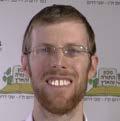


68 TORAH TIDBITS 1495 / VAYISHLACH 5783 TORAH VEHA'ARETZ INSTITUTE BY RABBI MOSHE BLOOM en.toraland.org.il Elul Sunflower seeds Persimmon Orange Kiwi Clementine Raspberry Pineapple Mint Banana Artichoke Asparagus Yom Kippur 5783 Prickly Pear (Sabra) Onion Blueberry Mid-Tevet Pumpkin Fig Butternut squash Pesach Celery Cauliflower Carrot Cabbage Broccoli Beet Leek Kohlrabi Horseradish Fennel Eggplant Corn Passionfruit Parsley root Parsley Melon Spinach Scallion Potato Pepper (bell + hot) Turnip Tomato Sweet potato String bean Watermelon Star fruit Chanukah Lettuce Baby radish RH Heshvan Strawberry RH Kislev Pecan RH Kislev 5784 Kale Dill Cucumber Coriander (Cusbara) Chard Basil Squash Radish Pitaya Peruvian apple cactus (Kobo) Mid-Heshvan Peach Nectarine Loquat Shevat Table Grape Peas (fresh) Garlic RH Nissan Cherry – sweet and sour (Duvdevan and Gudgedan) Lemon Anna Apple Almond (green) Wine grape Pear Plum Mango Lychee Loganberry Mid-Iyar Pomegranate Guava Avocado RH Av Watermelon seeds Sweetsop (Annona) Mulberry Apricot Apple (all but Anna) Mid-Tammuz Kumquat Limequat Lemonquat Carob RH Heshvan 5784 Rosh Hashanah 5784 Sweetie (Pomelit) Pomelo Peanut Grapefruit Feijoa Date This chart features the approximate dates after the shemitah year when shemitah laws no longer apply to fruits and vegetables and no shemitah supervision is required. For more information, see the full chart on the Torah VeHa’aretz Institute website. Products with no shemitah concerns: Beans (dried) Black-eyed peas | Chestnuts | Ginger | Hazelnuts Lentils | Macadamia | Mushroom | Oats | Okra | Peas (dried) | Pistachio | Rice | Soy | Walnuts | Wheat Until when do shemitah laws apply to fruits and vegetables during the eighth year? Updated Kislev 5783 We would like to thank Dr. Yehoshua Klein for his valuable input that significantly improved this chart.
NEW IMMIGRANTS? RETURNING RESIDENTS?
MAALOT Business Center for New Immigrants and Returning Residents
Want to establish or expand a business? We are here to help!





We offer you the most professional and comprehensive toolbox for promoting your business, including: consultation, profitability testing, workshops, assistance in getting funding, writing a business plan, participation in conferences, and more.
Visit for advice from the best mentors and to take part in workshops on a variety of topics: marketing, finance, digital, sales, high-tech, business networking and more.
Through Maalot Jerusalem, the Business Entrepreneurship Division of the Ministry of Aliyah and Integration provides you with a unique and subsidized package of benefits to ensure the success of your business.
The services are intended for new immigrants up to 10 years in the country and returning residents up to two years, for the purpose of establishing a business or expanding an existing business and are conditional on the approval of eligibility by the Ministry of Aliyah and Integration.

OU ISRAEL CENTER 69 י״טמ םילשורי תומזי חופיט זכרמ יקסע זכרמ ת״ולעמ םישדח םילועל םירזוח םיבשותו תיקסע תומזיל ףגא
Your Idea, Our Professionalism And Experience 02-5315107 tania@mati.org.il
more information
us:
For
contact
Forty years ago, people used to THINK differently.
Nobody would have thought of hiring Debbie.
Nobody would have thought of spending three afternoons a week hanging out with Shira.
Nobody would have thought that Jake could pass his Regents.
Unless it was relevant to them, nobody was really thinking about individuals with disabilities at all.
70 TORAH TIDBITS 1495 / VAYISHLACH 5783 IVDU SUMMER J.U.F OUR WAY REACH BALTIMORE CHICAGO CLEVELAND ISRAEL LOS ANGELES NEW ENGLAND (02) 656-8048 . YachadIsrael@ou.org . Yachad_Universe NEW JERSEY NEW YORK SOUTH FLORIDA TORONTO
Today, Yachad has created a world of kindness, acceptance, and respect.
Our programs and services give individuals with disabilities opportunities never dreamed of before. But that’s not where it ends.
Through daily inclusion programs, community Shabbatons, integration in summer camps, teen volunteering, and sensitivity training in schools, Yachad is teaching the Jewish Community to give everyone a place – in our communities and our hearts.
This is Yachad.
Find out more about our programs and services at yachad.org
OU ISRAEL CENTER 71
WEITZMAN
Who Are the Parents?
Last time we presented the case of the tragic mistake that occurred recently in one of the hospitals in Central Israel. A couple discovered late in their pregnancy that the baby girl the woman was carry ing was not her own and there had been an error. Another couple’s embryo was implanted by mistake.
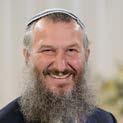
This raises the question as to how we define motherhood; is it the genetic mother or the gestational mother, who carries the baby and gives birth. While this is a question is all cases of egg donors or gestational carriers, this particular case is different, since the switch was done without the consent of the parties involved.
In addition, the case of egg donation raises the question of who is the mother, but there is no debate as to who the father is. But in our case the father is not the husband of the woman carrying the baby.
The medical staff of the hospital iden tified another couple who they assumed were the parents. But everyone was in for a huge shock; when the baby was born and all the relevant parties were checked it was discovered, to everyone’s dismay, that the other couple were not
the parents either!
There have been previous cases in which there was an embryo switch between two women or two couples. There was a famous case of Carolyn and Sean Savage in Ohio who also discovered that they were pregnant with embryos from another couple. They decided not to terminate the pregnancy but to deliver the baby and hand the child to the genetic parents. Jean wrote a book about her experience and decision, Inconceivable: A Medical Mistake, the Baby We Couldn’t Keep, and Our Choice to Deliver the Ulti mate Gift. The title itself conveys the heart-wrenching and agonizing expe rience that they must have both been through.
But the case in Israel is unique in that we know who delivered the baby but have no idea as to who the genetic parents are. If motherhood is defined as the woman who carries the pregnancy and delivers the baby then the woman currently hold ing the baby girl born is the mother. But, if we define motherhood by genetics, we do not have a mother. And we cannot solve the question of who the father is, only to say that it is clearly not the husband of the woman who gave birth to that baby girl, since he did not supply any genetic contribution to the child.
So, who are the parents? More on this next time.
72 TORAH TIDBITS 1495 / VAYISHLACH 5783
RABBI
Machon Puah for Fertility and Gynecology in Accordance with Halacha
GIDEON


OU ISRAEL CENTER 73 FOR YOU IT IS A TACTICAL TRAUMA KIT FOR THEM IT IS A LIFE! $360 TO SAVE A LIFE UNITED HATZALAH HELP SAVE LIVES! SCAN TO GIVE TODAY! israelrescue.org/kit IN 2022, ISRAEL HAS SEEN 10% INCREASE IN TRAUMA CALLS AND 61% INCREASE IN TERROR ATTACKS
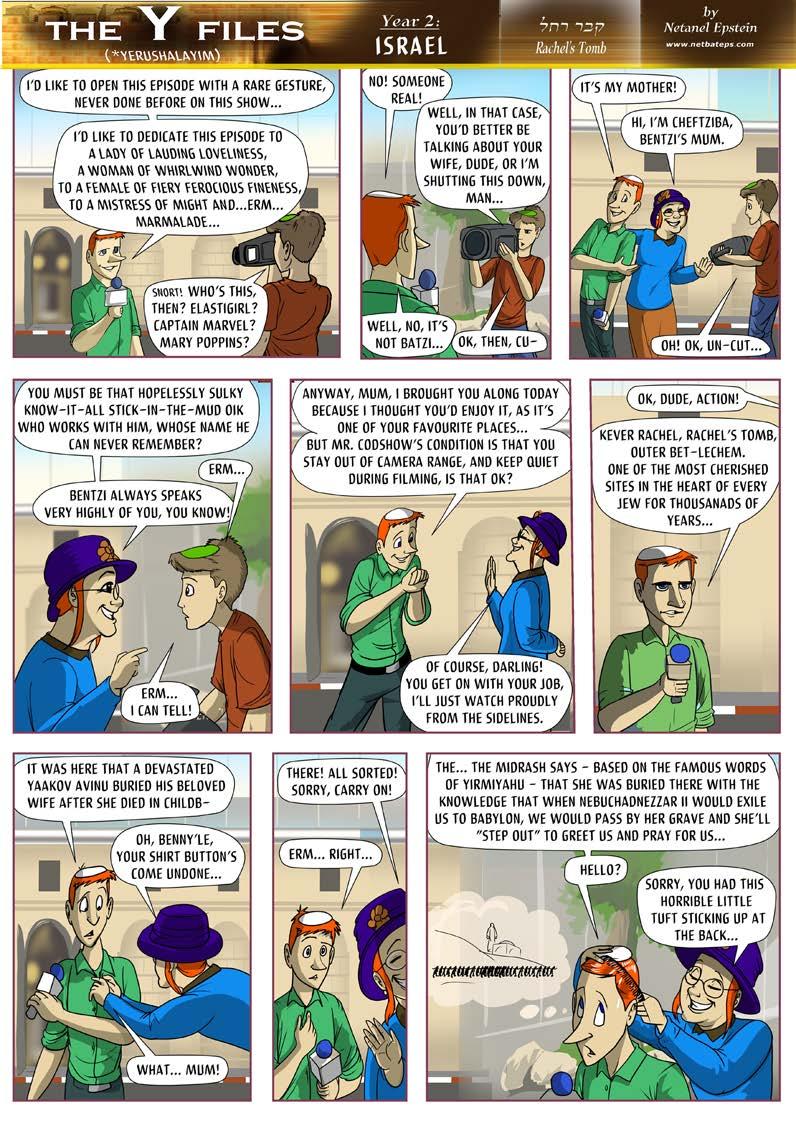
74 TORAH TIDBITS 1495 / VAYISHLACH 5783
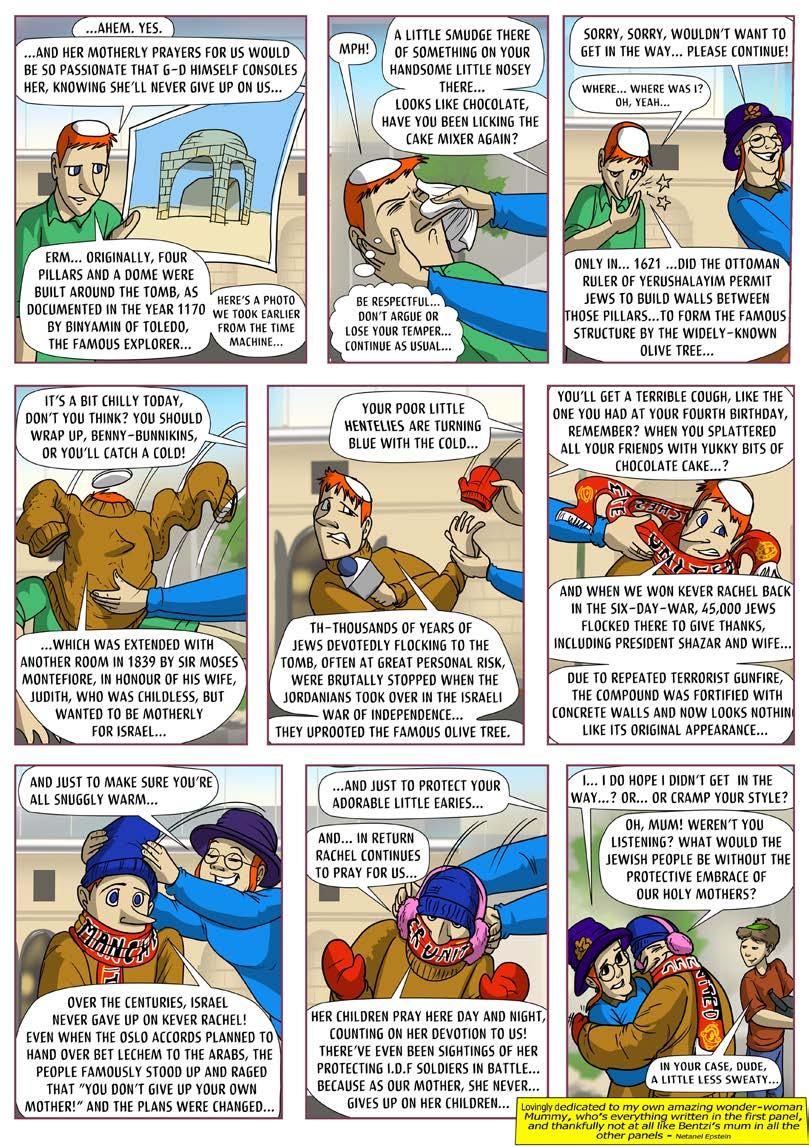
OU ISRAEL CENTER 75
TORAH 4 TEENS
BY TEENS NCSY ISRAEL


Ian Schwartz Gush Chapter Director


Maase Avot Siman LeBanim
When we read the Chumash, sometimes the Avot and Imahot seem very hard for us to relate to. Avraham was on such a high spiritual level who was willing to sacrifice his own son for God! This is hard for us to even imagine.
In addition, the Torah tells us very little about Yitzchak and who he was. However, Yaakov Avinu comes across as a very down to earth character. We know that he had many ups and down in his life. Since he is the last of the Avot he is closest to us not only chronologically, but also in his relat ability to our lives.
At the outset of the Parsha, the Torah tells us that Yaakov was extremely afraid of his reunion with Esav. There is a unique moment after his family crosses over Maa var Yabok that Yaakov decides he must go back over the river for an unclear reason. Rashi tells us that Yaakov crossed back over to search for the “pachim ketanim” tiny jugs and containers. Why at this crit ical moment was Yaakov concerned with something so seemingly unimportant? I think the answer simply is that Yaakov felt a sense of anxiety due to his fear of Esav which caused him to act irrationally.
For us, the message could be that even the greatest people who we see as con stants and unshakable in our lives can also have moments of fear and anxiety. The Torah wants us to recognize the Avot as human beings, and that even though they were great tzadikim and tzidkaniot it doesn’t mean they don’t have moments of fear and doubt like the rest of us.
I would like to conclude with a story that emphasizes the relatability of Tzadikim. A Rosh Yeshiva once met with Rav Chaim Kanievsky zt”l and told him that the boys in yeshiva were finding it difficult to focus on Torah learning for many consecutive hours in a row. He approached Rav Chaim for advice. Rav Chaim responded sweetly and said, “I also find it hard to focus on learning for such a long period of time, so I tell myself just five more minutes!”
Gadi Pollack 11th Grade, Efrat Emunah and Bitachon in Hashem
Our Parsha opens up with Yaakov and Eisav meeting up after not seeing each other for many years. Yaakov is afraid that Eisav still hates him and tries to appease him in many different ways. Yaakov even bows down to Eisav 7 times.
How could Yaakov bow down to such
76 TORAH TIDBITS 1495 / VAYISHLACH 5783
a Rasha? Shouldn’t he have acted like Mordechai who refused to bow down to Haman? Rav Hutner explains as follows: The Gemara says that one is obligated to sacrifice their lives in order to avoid serv ing Avodah Zara. The Gemara asks how is it possible that Daniel chose to bow down to an idol instead of sacrificing himself. The answer given is even on the outside it looked like he was worshiping Avodah Zara, but on the inside he was davening to Hashem.
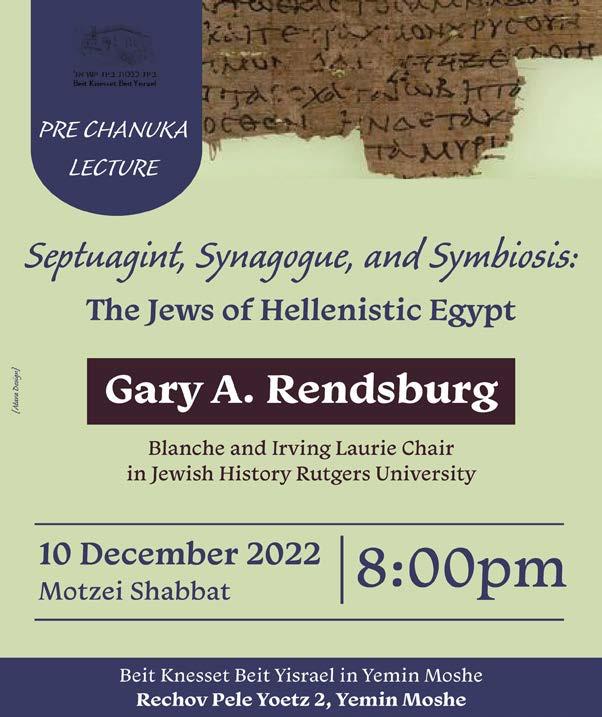
So to Yaakov, when he bowed down to Eisav it was only on the outside, but on the inside he was davening to Hashem.
The message for us is when we feel like we don’t have control over our lives we should remember that the person or the situation that we are dealing with is really just a kli, because ulti mately Hashem is the one behind the scenes. We should be zocheh to rec ognize Hashem’s presence in this world by realiz ing that we can’t control everything and instead of becoming frus trated with the situation that we

OU ISRAEL CENTER 77
NCSY Israel is the premier organization in Israel, dedicated to connect, inspire, empower teen olim to the Land of Israel by encouraging pas sionate Judaism through Torah and Tradition. Find out more at israel.ncsy.org YOUR REAL ESTATE AGENT IN JERUSALEM Purchase/Sell Debisraelhomes@gmail.com Whatsapp 0532852345 are dealing with, we should be curious and excited knowing it’s from Hashem and Hashem only wants the best for us!!!
78 TORAH TIDBITS 1495 / VAYISHLACH 5783 Celebrating young Olim who are making a contribution to their community. PRIZE CRITERIA • Between the ages of 12 and 18 • Made Aliyah from an English-speaking country • Making a meaningful contribution to their community Announcing the 2022 LAST DAY FOR NOMINATIONS: SUNDAY, DECEMBER 11, 2022 PRIZES WILL BE AWARDED AT THE NEFESH B'NEFESH FAMILY CHANUKAH PARTY SUNDAY, DECEMBER 25TH. If you know someone deserving, nominate them today! WWW.NBN.ORG.IL/MAOR



OU ISRAEL CENTER 79 054-527-9356 DIRTY AIR, DAMP & MOLD GREEN TREATMENT EXPERTS - Corona Cleaning - Deodorization - Leak Detection Systems - Waterproofing - English + Hebrew Reports - Working at heights - Insured - Quality House Painting QUICK ESTIMATE/FREE ADVICE :)
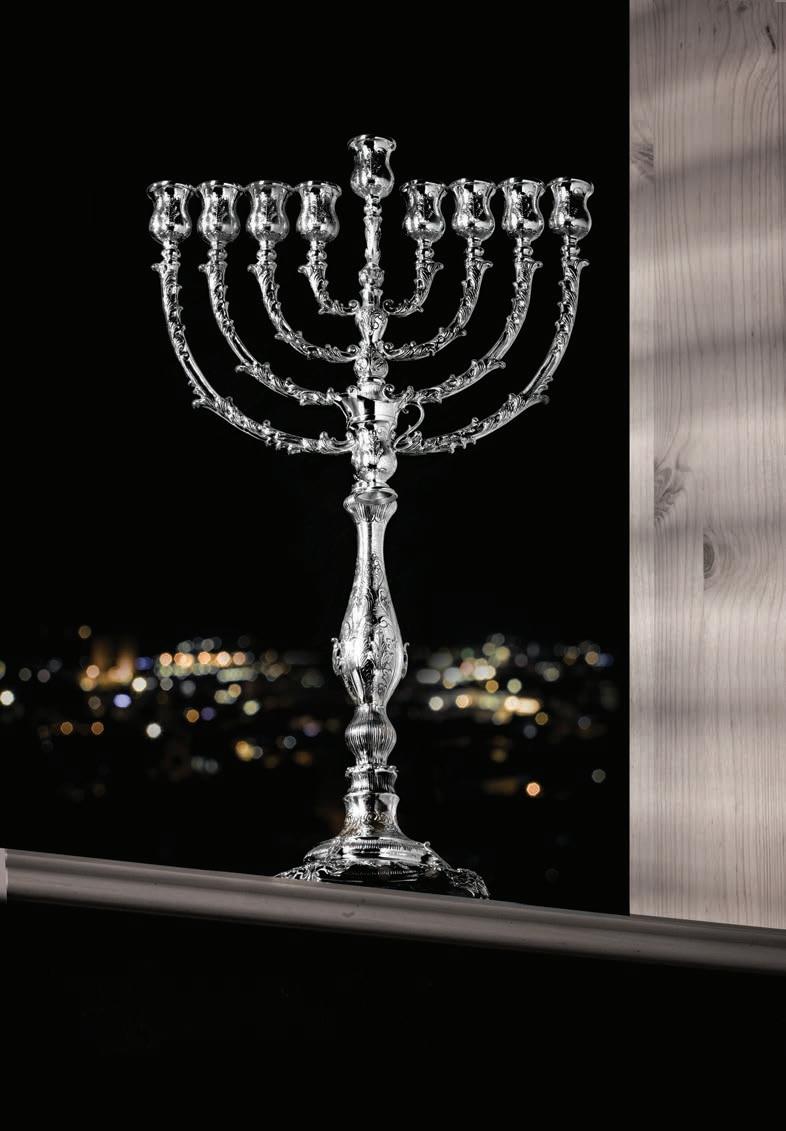
Jerusalem | Kfar Daniel | Bnei Brak | Tel Aviv | Haifa Raanana | Ben Gurion Airport WWW.HAZORFIM.CO.IL // 072-3700368 HAZORFIM. TRUE RADIANCE































 RABBI
RABBI


































































































































































































 RAV DANIEL MANN
RAV DANIEL MANN

























